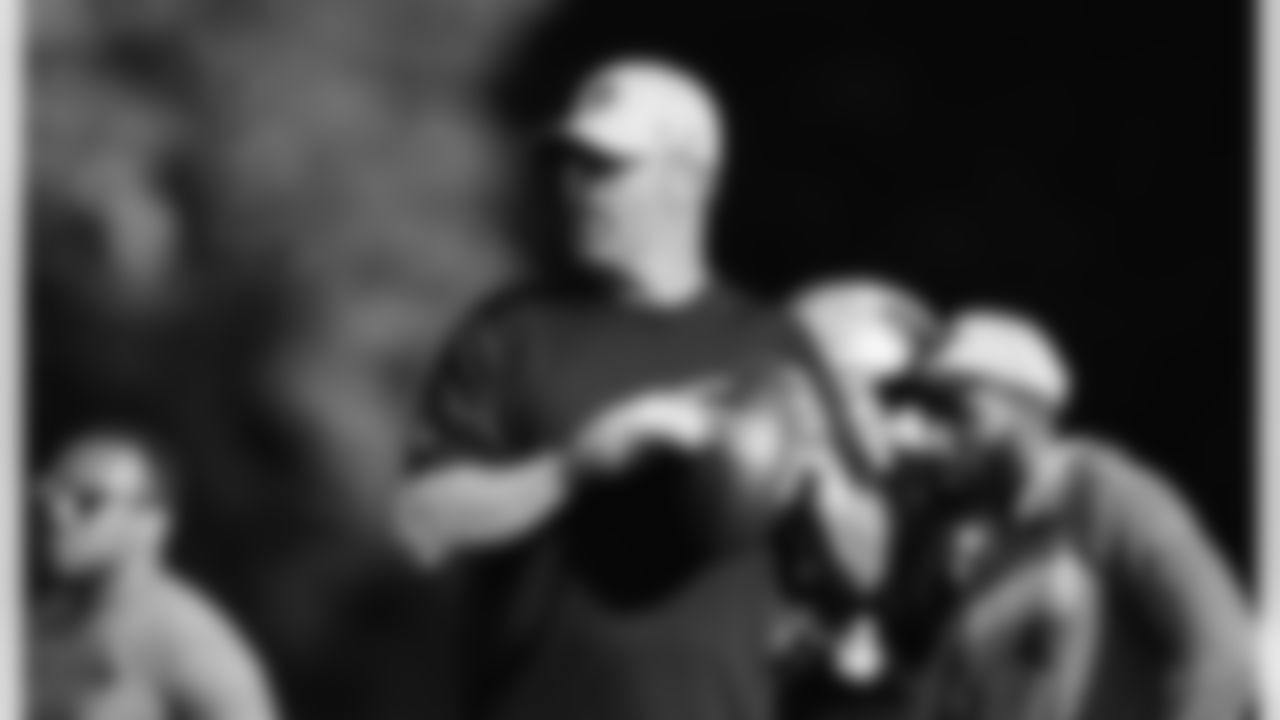MOBILE, Ala. — A year ago, Panthers general manager Scott Fitterer was days into his new job, and came to the Senior Bowl to meet his new co-workers — speed-dating them while he was trying to get to know a huge class of draft picks.
Now, he's working on the challenges of upgrading the Panthers at several key areas, as he kicks off the scouting season at the practices here.
Fitterer sat down for a conversation about the challenges and opportunities of Senior Bowl week, and how they impact other roster decisions as the Panthers head into a critical offseason.
Q: This week seems like a good way for you to shift gears, into what should be a busy offseason. After taking a short break, does it change the way you view this event?
FITTERER: "This is definitely a turn-the-page moment for us. During the season, we're going week-to-week, trying to get the roster right. And then after the season ends, you take a week or two to assess where you are as an organization, what you have talent-wise on the roster, and what we need to do differently. Now is our ability to turn that page, and look forward to free agency and the draft.
"Really, the Senior Bowl is our first chance to really get to know these guys. This is the most talent that's in this game, the first three or four rounds will come out of this game. And to be able to sit down with these players, and not just watch them on tape, but get to know them, see them work during practice, see how guys compete during individual drills, how they interact with their teammates, it's all really important. This really is the turning point for us."
Q: After looking back at last season, has your view of the needs for this offseason changed, in terms of priorities?
FITTERER: "We know what we need. It's pretty obvious some of our shortcomings. Now, it's about how do we put ourselves in a position to address those needs? Is it free agency, is it the draft, is it the sixth pick? All of these things factor in. And then we come up with a plan of how we attack this, and what's the best way to get the most bang for our buck?"

Q: After drafting 11 players last year, how do you weigh the value of having a top-10 pick (sixth overall) against having multiple picks?
FITTERER: "When you're picking at six, there's going to be a really good player there, like a franchise-type player. You have to understand how your board works. People say there's a ledge around 16 to 18, where the talent level falls off. If you can move back, and still get a similar quality of talent, and pick up picks, yeah, that's great. But we're not going to pass on a guy that we think is a game-changer. You just don't move out of those picks unless you think you can receive equal value and get more picks."
Q: As you look at that board now, do you see game-changers on both lines in this draft?
FITTERER: "It appears so, at this point. Now, it's really early in the process, and we've seen some really impressive guys on tape. Now you've got to see where medical evaluations fall into this, the way we interview these players, their competitive makeup, all these things factor in."
Q: How do you balance the needs at multiple positions when you have a top-10 pick? Can a safety or a guy at another position be a game-changer?
FITTERER: "It's possible. Everybody is unique. But there is a value to position, though. Left tackles, corners, three-techniques, pass-rushers, those are the game-changers on your team, along with your quarterbacks. A safety can be, but it's not always probably at that level. If it was a safety that we wanted, that might be a position where you try to go back and see if you could get someone a little bit later."

Q: Quarterbacks will obviously be a big focus this week. Is this as good a group as has been at this event?
FITTERER: "There have been some good years here; Justin Herbert was just here a few years ago. There's always good talent, and it will be interesting to see how these guys throw this week. We'll get a look at Malik Willis, and Kenny Pickett, and all the guys that are here and get a feel for them. And it's always different seeing them in person than it is on tape; that's why it's important to see them."
Q: What are the things you look for and look at in the quarterbacks this week?
FITTERER: "Just how live their arms are, how quick their feet are. How do they set up in the pocket, are they balanced, can they rip it? Are they seeing things through the progression on time? Are they processing quickly? It's not just all about arm talent or size; it's about being able to read and process quickly and then deliver the ball and get the ball out on time."
Q: You have experience with finding a rookie quarterback and having success with him early (from your days in Seattle, winning a Super Bowl when Russell Wilson was on his rookie deal). How much will that play into your evaluation of this class?
FITTERER: "That's huge. I mean, ideally, that would be the way you want to go, to have a young quarterback on a rookie contract with a veteran team around him. Once you get up to paying a guy $30 million or $35 million a year, that limits what you can do, and you're taking from other areas of your team.
"Any time you have a rookie quarterback, it really helps financially. What we did in Seattle, we had a veteran team, and we were able to drop a rookie quarterback on a rookie quarterback's contract onto that team. We were still able to have a lot of veteran, talented players on bigger contracts around him. Economically, it's a smart way to do it, but it's not always the easiest way to do it. Because you have to find that guy, identify him, and a lot of time you're picking high in the draft if you're able to do that. We were fortunate in Seattle to get Russell (Wilson) in the third round. That might be the ideal way to do it, but it's not always the easiest way."
Q: How do you weigh the importance of finding a left tackle vs. a quarterback when you're evaluating players?
FITTERER: "You just take the best available. If you have a quarterback you think you can win with long-term; obviously, you'd probably lean that direction. You're always looking for that. It's not the safest way to go, but you have to take your shots. Any time you're in the top 10, you've got to think about taking a shot on a quarterback if you're able to. Left tackles are probably easier to identify; if you think they can step in and play left tackle for you for 10 years, that's always a solid pick as well. It's however you want to address it, but if you have a quarterback you like, you take a shot there."
Q: The team just hired James Campen to coach offensive line. He had a reputation in Green Bay for turning later-round picks into productive players. Does that open the door to new ways to address the line, particularly thinking about the top tackle prospects (including Evan Neal, Charles Cross, and Ikem Ekwonu) not being here this week?
FITTERER: "Yeah, it's all about developing offensive linemen. Coach Campen's got a long history of doing that; he's very well respected. From the research we've done with people who have worked with him, he's good at evaluating talent as well as developing it. That's going to be huge for us, because you can't always just pick offensive linemen in the first round, with the first six or seven picks in the draft. You have to be able to identify guys in the third round who can start for you and play for you, and he has a history of that."
Q: When you think about the value of this week from a scouting perspective, what's the most important part for you as a general manager?
FITTERER: "We get the information, heights/weights/speeds, we see them on the field, but the most important part of this week is sitting down and interviewing them. We're trying to figure out who these guys are. This is our chance to look them in the eye. You always hear about them, hear about their character from coaches, and everything else. But to sit down, know what some of the issues may be, and then talk to them directly and say, 'This is what I'm hearing, why is this?' Or you're trying to find out how resilient they are, so you ask about something they've overcome, how the guy ticks. What's driving this guy? Is he a passionate football player, or is he a guy that's always been talented, and this is just the next step in the process? Does he have the recruiting mindset where he's never had to battle through anything, and everyone always says he's the best? Or is he a Joe Burrow, who was at Ohio State, wasn't getting any time, and goes to LSU and takes off? You're looking for those guys with resilience, and sitting down with them and getting to know them is the most important part."
Q: This is a lot different for you in terms of what it was like here last year, when you were new to the job. Does that change the way you evaluate this week?
FITTERER: "This will be a lot different. I think I was in the office for three days prior to coming here (last year). We coached the game; the good part was we had a lot of access to players. We sat with them in meetings, our coaches and our scouts, and we could evaluate them.
"I was able to evaluate our coaching staff too, get to know them, how they coach, and it's great for us. Having the ability to coach last year really helped us identify the players we wanted. This year will be different; we're a little more limited in what we can do, but we still have to get the same quality of work out of this."
View photos of new offensive coordinator Ben McAdoo, special teams coordinator Chris Tabor, offensive line coach James Campen, defensive pass game coordinator Steve Wilks and defensive line coach Paul Pasqualoni from their decades of NFL coaching experience.

Steve Wilks
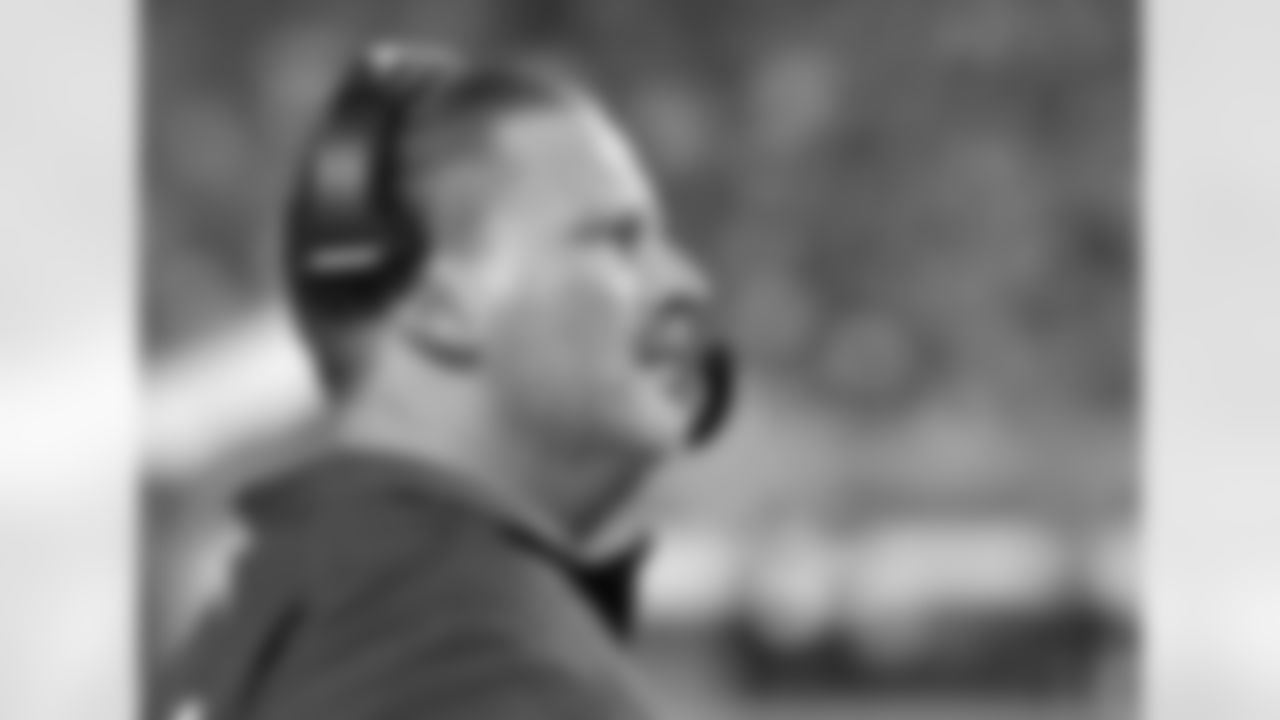
New York Giants head coach Ben McAdoo watches in the first half of an NFL preseason football game against the Cleveland Browns, Monday, Aug. 21, 2017, in Cleveland. (AP Photo/David Richard)
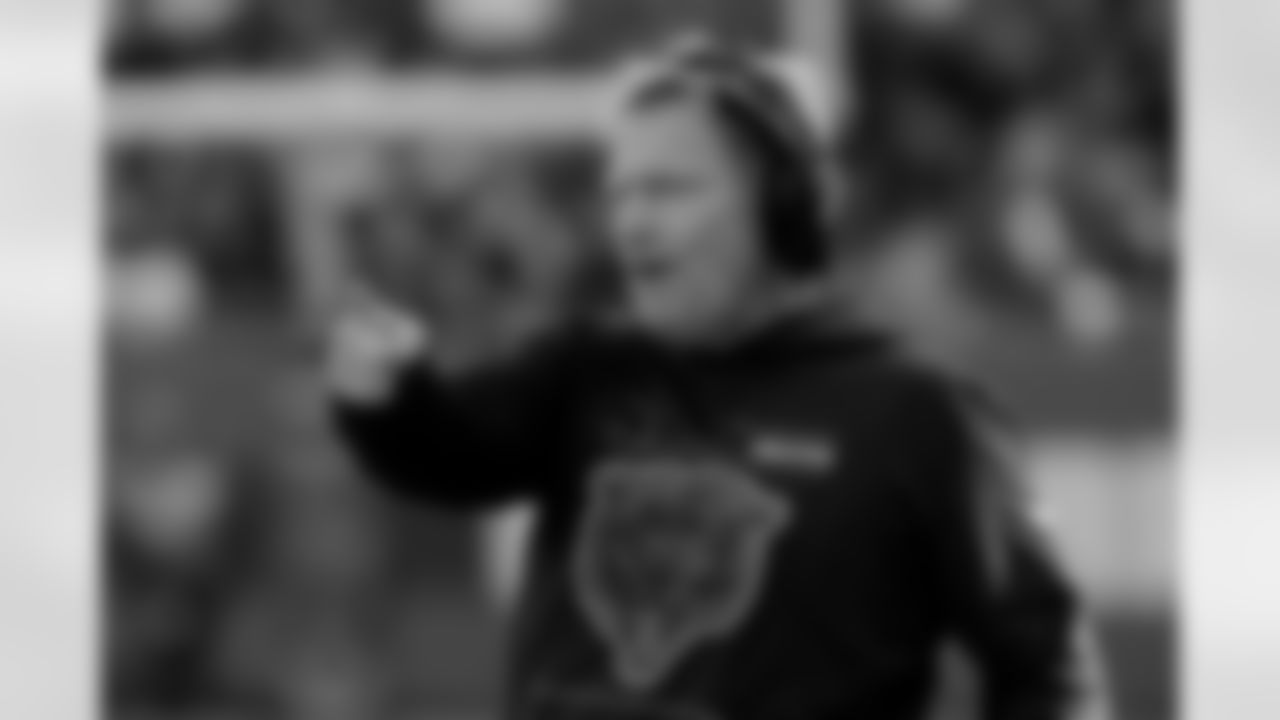
Chicago Bears acting head coach Chris Tabor points as he talks to his team during the second half of an NFL football game against the San Francisco 49ers Sunday, Oct. 31, 2021, in Chicago. (AP Photo/Nam Y. Huh)
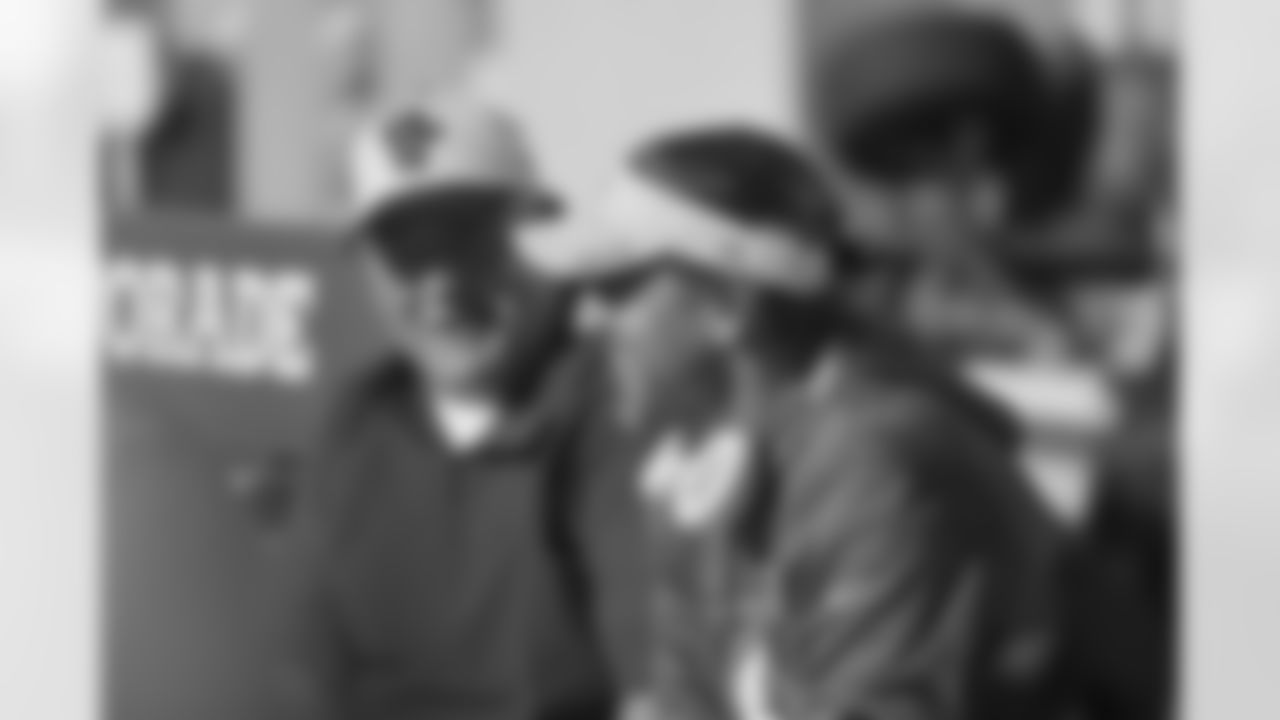
Green Bay quarterback Aaron Rodgers talks with Houston Texans offensive line coach James Campen during practice before the Green Bay Packers' preseason NFL football game against the Houston Texans Saturday, Aug.14,2021 in Green Bay, Wis. (AP Photo/Jeffrey Phelps)

Detroit Lions defensive coordinator Paul Pasqualoni on the sideline against New York Giants during an NFL football game at Ford Field in Detroit, Friday, Aug..8/17/18, 2018(Rick Osentoski via AP Images)

Steve Wilks Carolina Panthers against the New Orleans Saints during the wild card round of the NFL playoffs at the Mercedes-Benz Superdome on Sunday, January 7, 2018 in New Orleans, LA. (Photo by Melissa Melvin-Rodriguez)
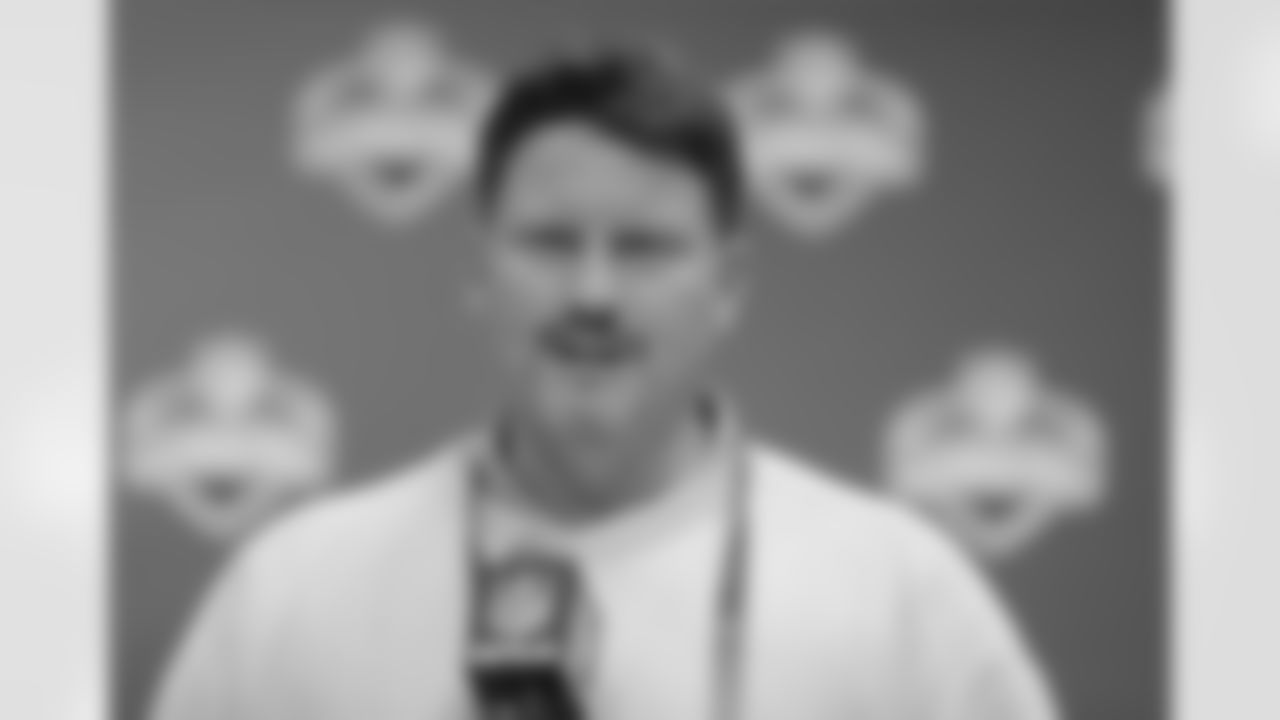
New York Giants head coach Ben McAdoo speaks during a press conference at the NFL Combine in Indianapolis, Wednesday, March 1, 2017. (AP Photo/Michael Conroy)
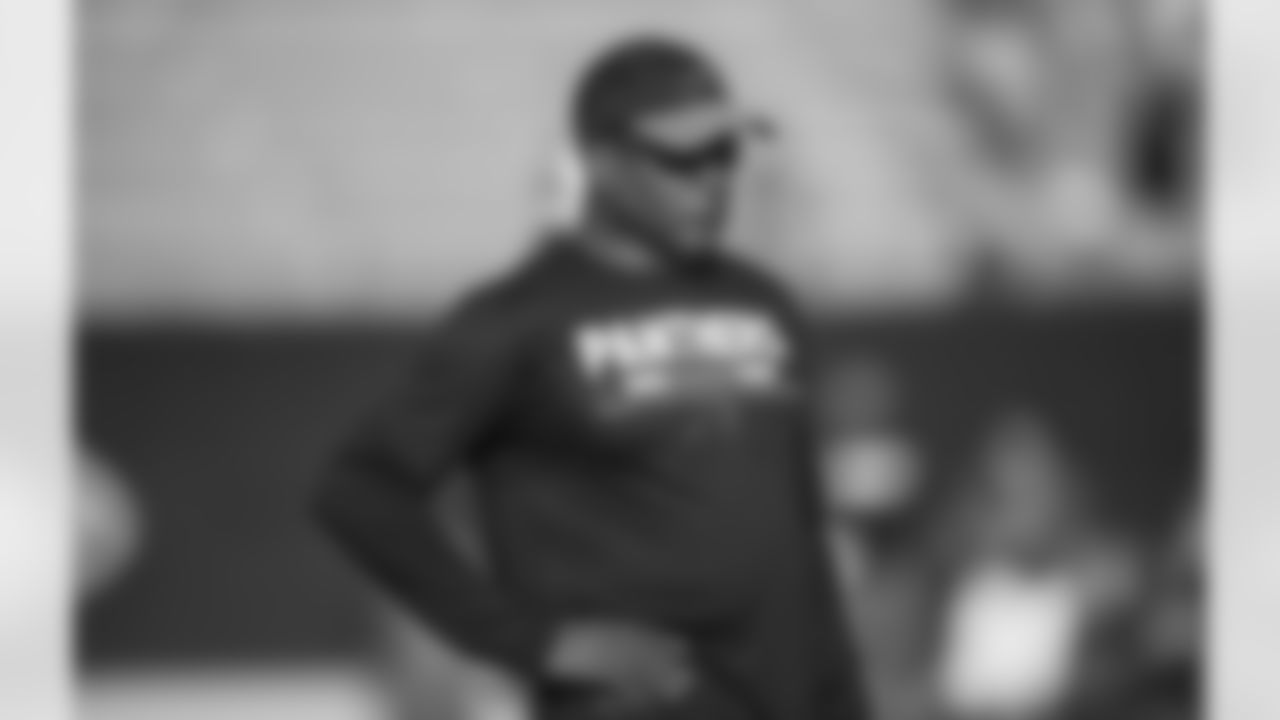
Steve Wilks The Carolina Panthers have their first practice at Gibbs Stadium in Wofford College on Wednesday, July 26, 2017 in Spartanburg, SC.
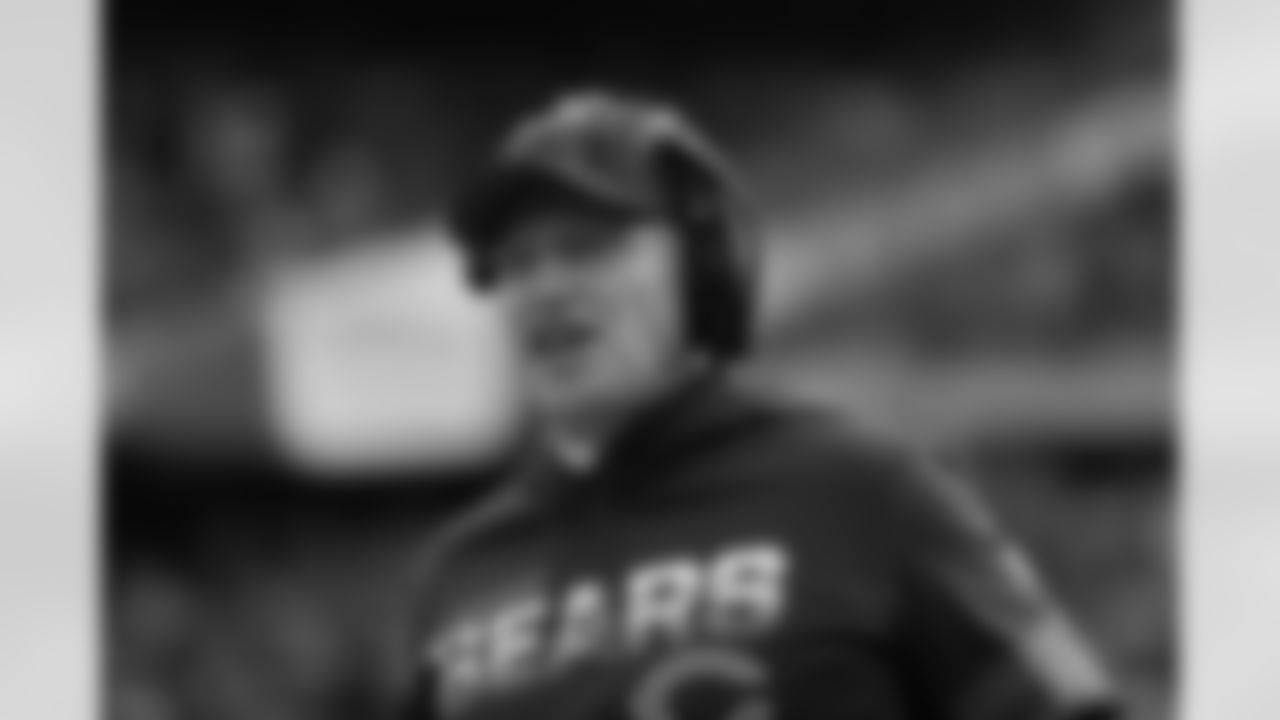
Chicago Bears special teams coordinator Chris Tabor watches against the New York Giants during the first half of an NFL football game in Chicago, Sunday, Nov. 24, 2019. (AP Photo/Paul Sancya)

New York Giants head coach Ben McAdoo talks to reporters after a NFL football practice in East Rutherford, N.J., Thursday, June 15, 2017. (AP Photo/Seth Wenig)
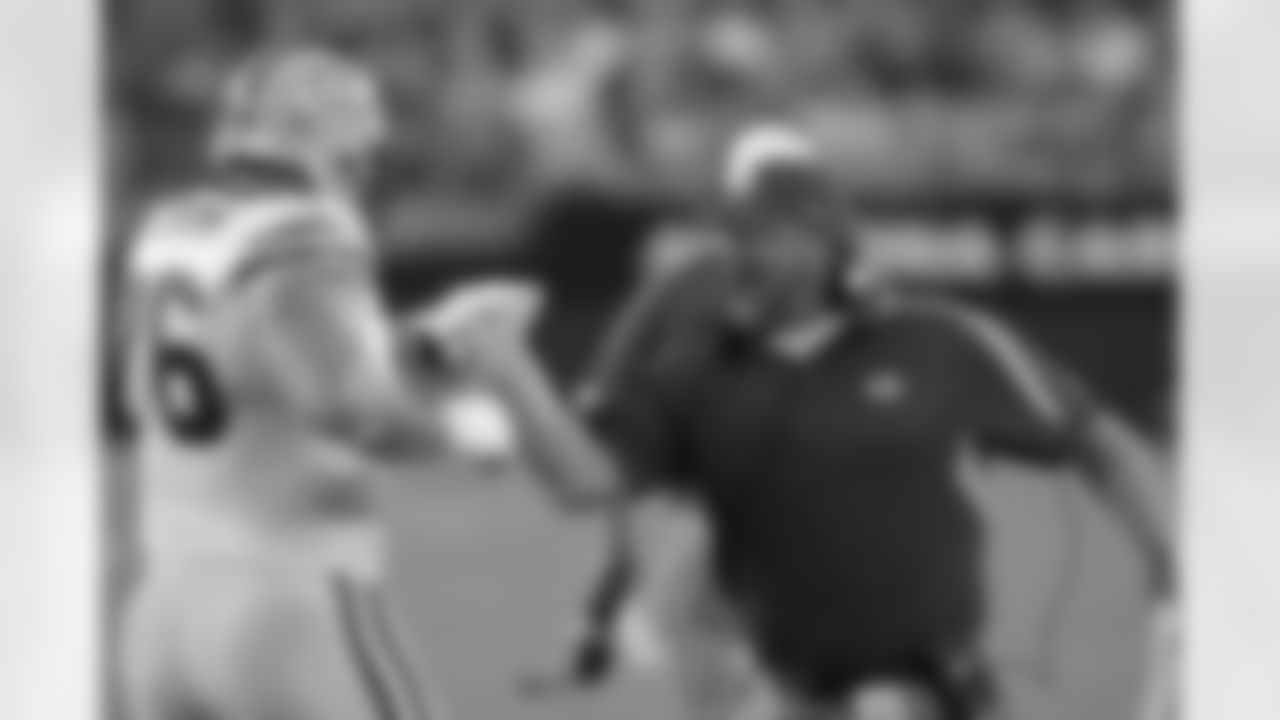
during the quarter of an NFL preseason football game Friday, Aug. 28, 2009. (AP Photo/Ross D. Franklin)
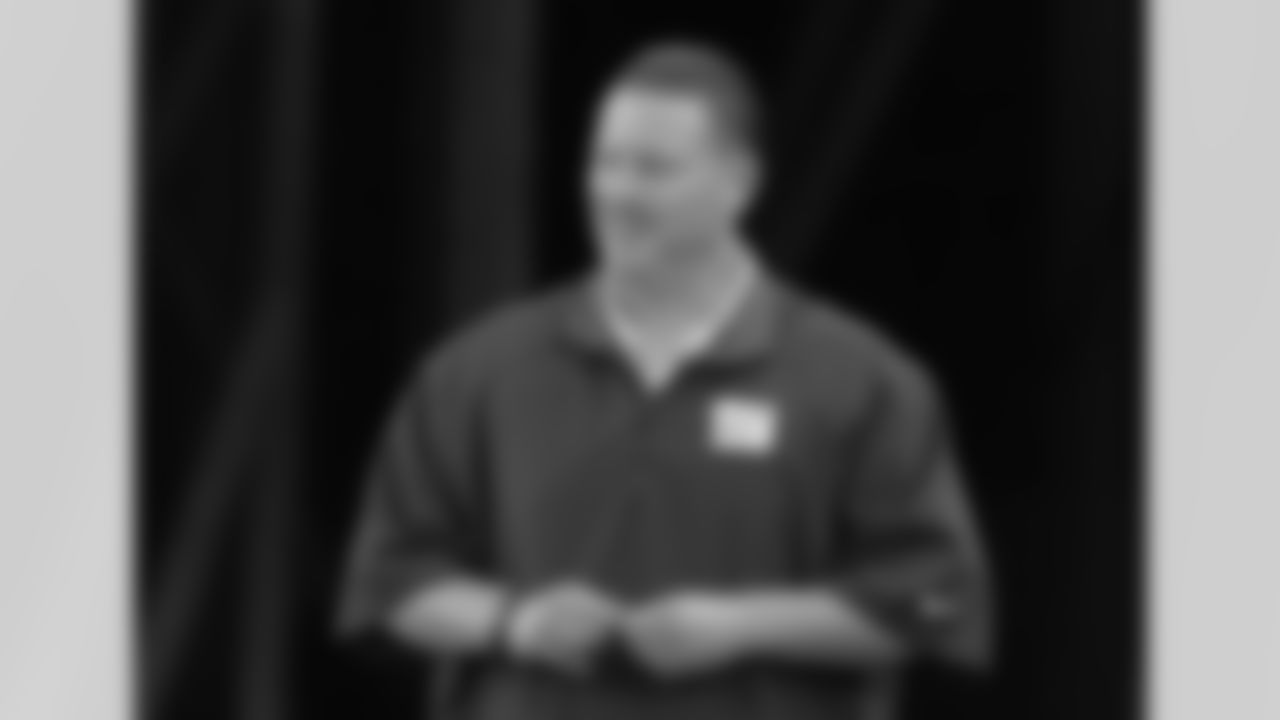
New York Giants coach Ben McAdoo looks on from the tunnel before an NFL football game against the Detroit Lions Monday, Sept. 18, 2017, in East Rutherford, N.J. (AP Photo/Bill Kostroun)

FILE - In this June 4, 2019, file photo, Chicago Bears special teams coordinator Chris Tabor talks with coaches during practice at the team's NFL football training facility in Lake Forest, Ill. Tabor is scheduled, Thursday, Aug. 1, to discuss progress since last season's kicking game woes for the Bears.(AP Photo/Nam Y. Huh, File)
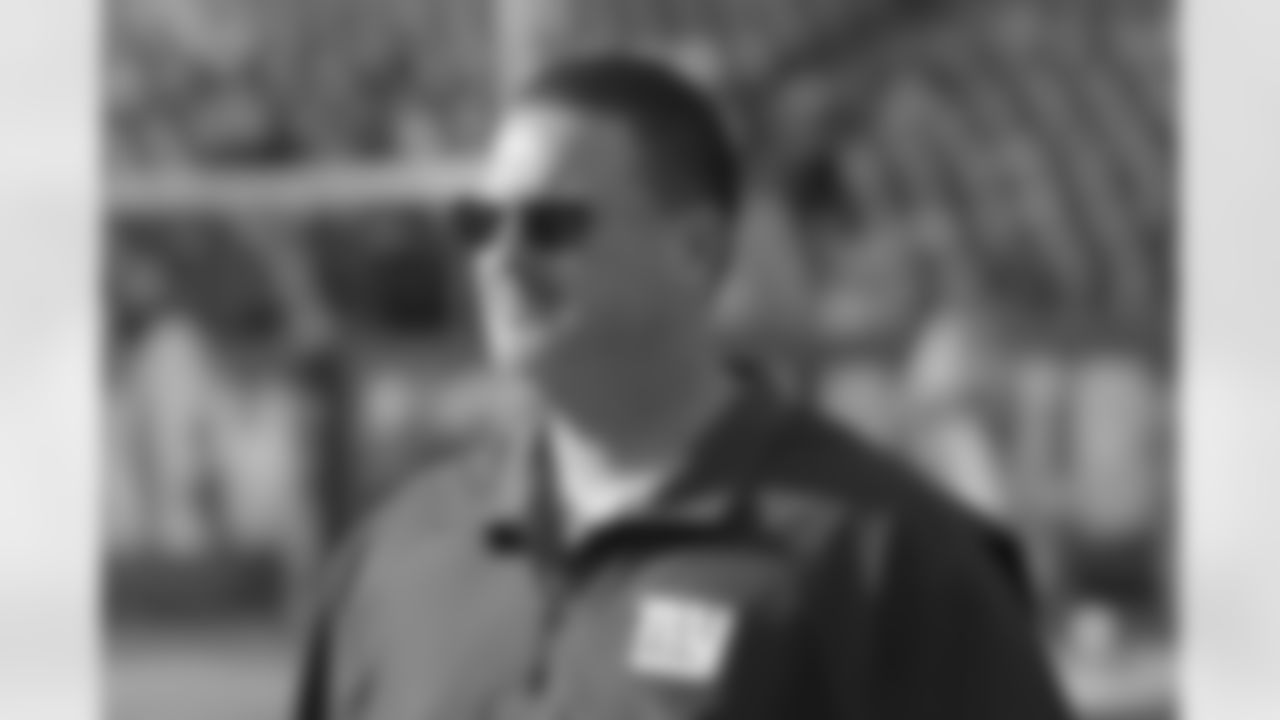
New York Giants head coach Ben McAdoo before an NFL football game against the Seattle Seahawks, Sunday, Oct. 22, 2017, in East Rutherford, N.J. (AP Photo/Bill Kostroun)
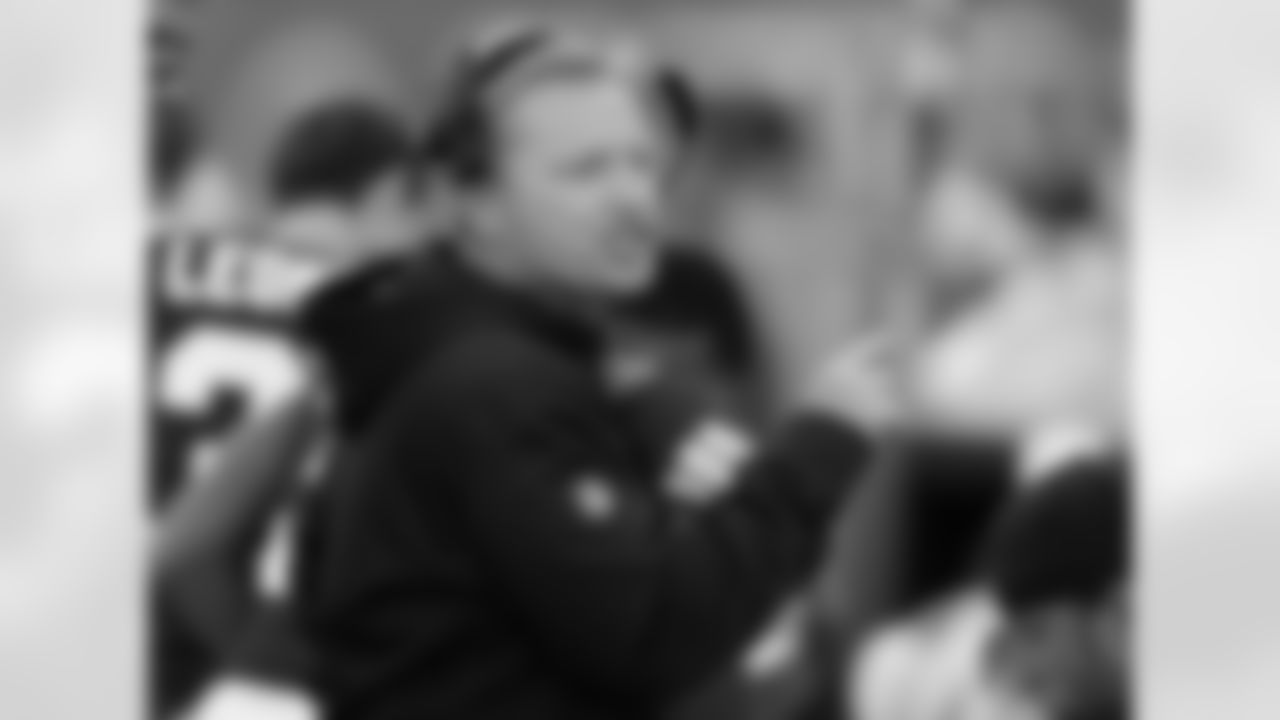
FILE - In this Oct. 26, 2014, file photo, Cleveland Browns special teams coordinator Chris Tabor gestures during an NFL football game against the Oakland Raiders, in Cleveland. The Browns are hanging on to special teams coordinator Chris Tabor. New coach Hue Jackson is retaining Tabor, who has been with Cleveland since 2011. (AP Photo/Tony Dejak, File)
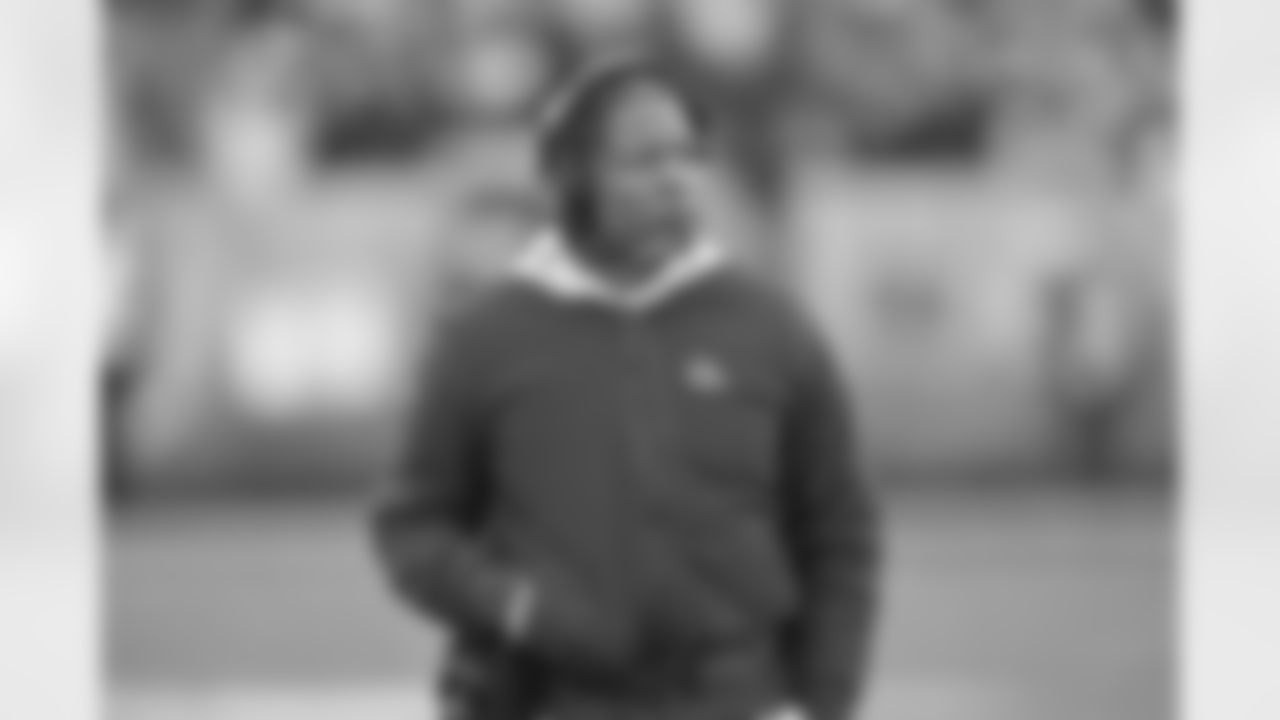
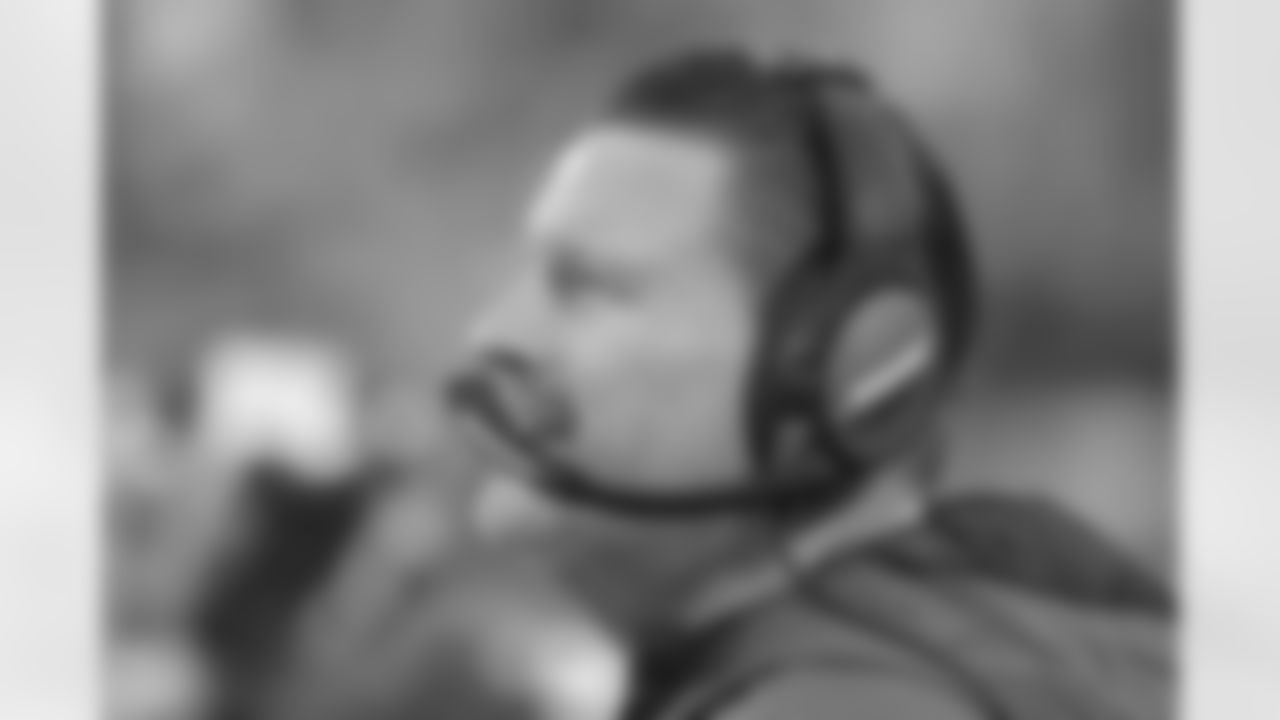
New York Giants head coach Ben McAdoo looks on during the second half of an NFL football game against the Los Angeles Rams Sunday, Nov. 5, 2017, in East Rutherford, N.J. (AP Photo/Bill Kostroun)
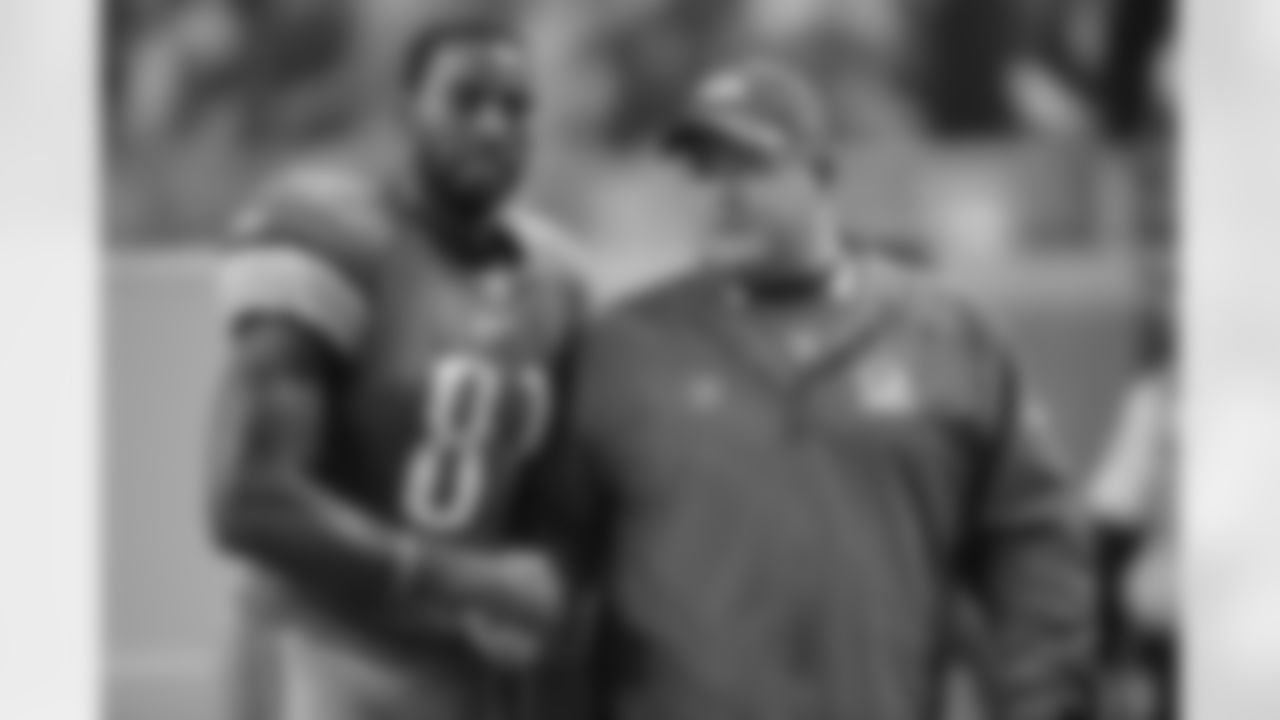
Detroit Lions wide receiver Calvin Johnson (81) and Green Bay Packers offensive line coach James Campen shake hands following an NFL football game Thursday, Nov. 24, 2011, in Detroit. The Packers defeated the Lions 27-15. (AP Photo/Duane Burleson)

Cleveland Browns special teams coach Chris Tabor agaisnt the Washington Redskins during an NFL preseason football game, Thursday, Aug. 13, 2015, in Cleveland. (AP Photo/Ron Schwane)
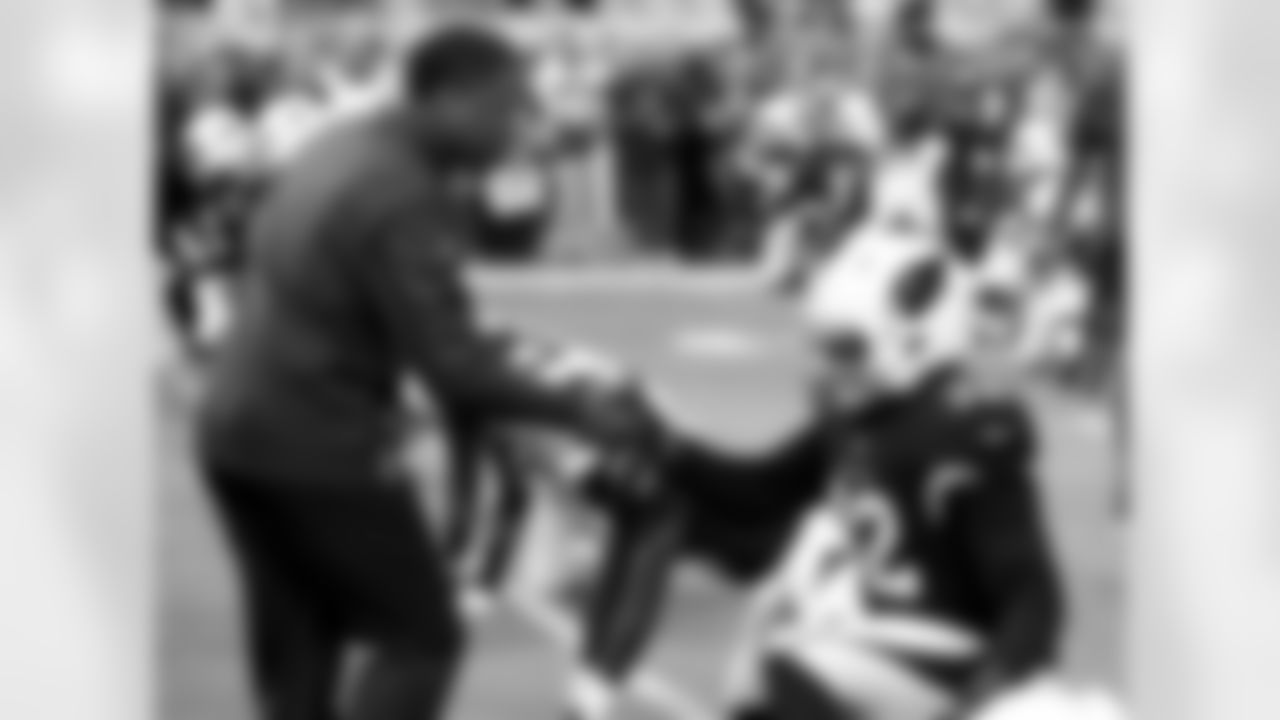
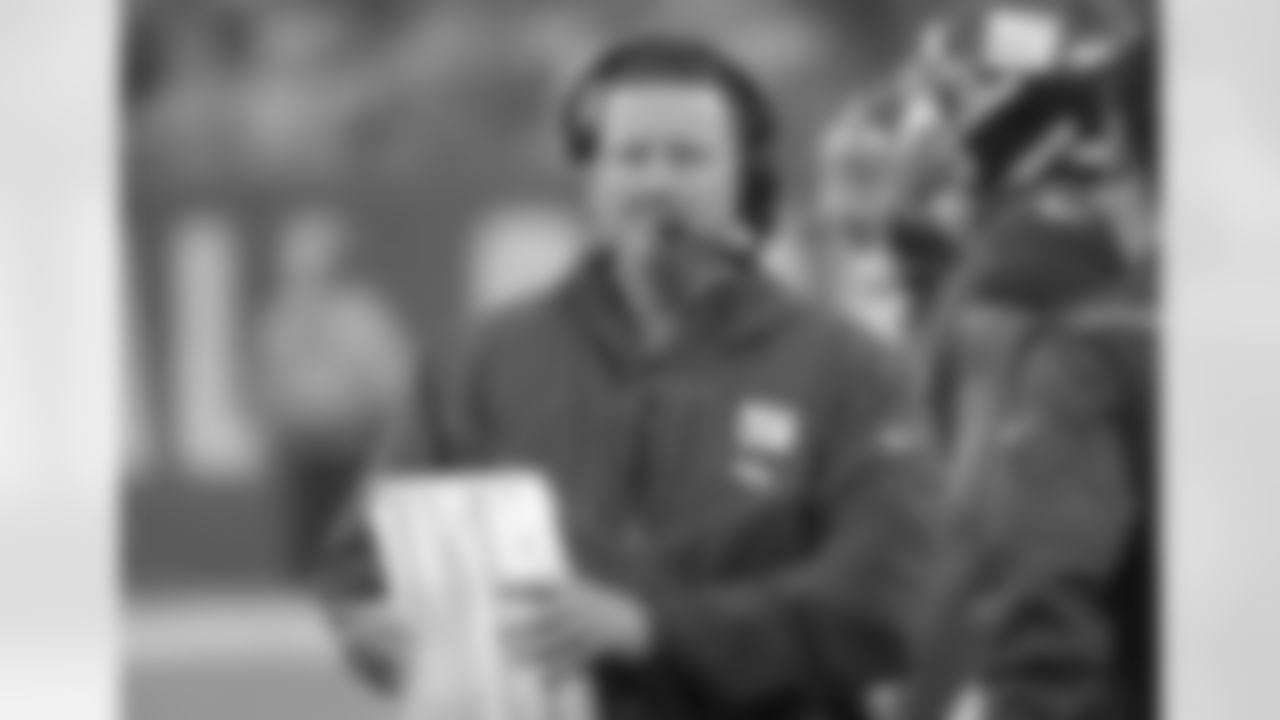
FILE - In this Sunday, Nov. 5, 2017, file photo, New York Giants head coach Ben McAdoo looks on during the second half of an NFL football game against the Los Angeles Rams in East Rutherford, N.J. With many calling for wholesale changes on the Giants in the wake of a dismal half a season, a relaxed coach Ben McAdoo took a very positive approach with his team heading into this week, telling the players he still believes in them. (AP Photo/Bill Kostroun, File)

Green Bay Packers offensive line coach, James Campen, during an NFL football drill during rookie orientation Friday May 1, 2009 in Green Bay, Wisconsin. . (AP Photo/Mike Roemer)
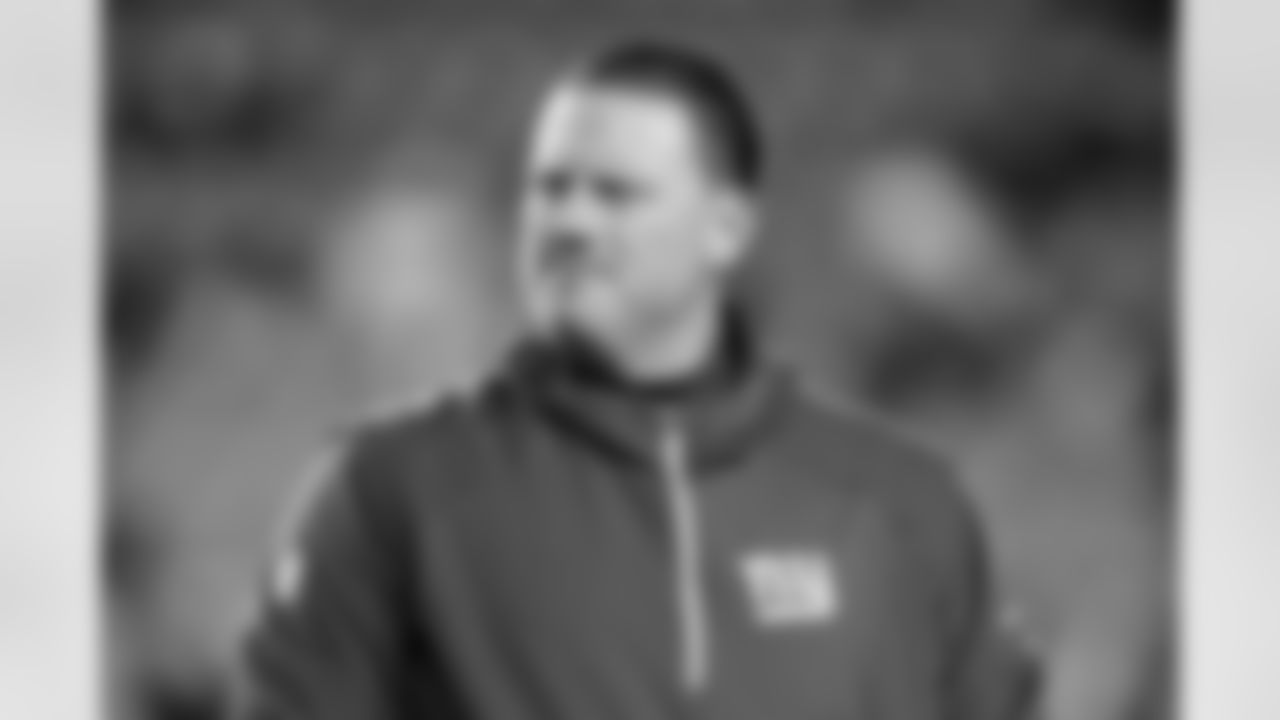
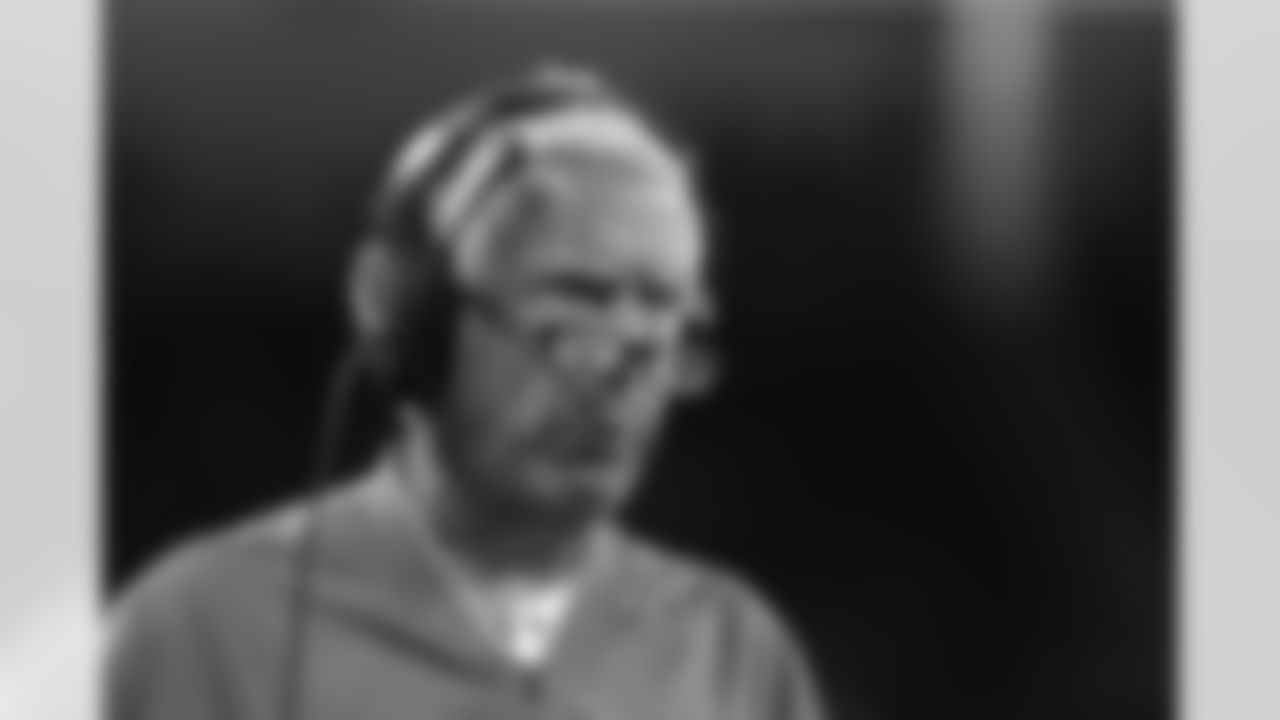
Detroit Lions defensive coordinator Paul Pasqualoni watches during the second half of a preseason NFL football game against the New York Giants, Friday, Aug. 17, 2018, in Detroit. (AP Photo/Paul Sancya)

Chicago Bears special teams coordinator Chris Tabor walks on the field during an NFL football game against the Cleveland Browns, Sunday, Sept. 26, 2021, in Cleveland. The Browns won 26-6. (AP Photo/David Richard)


Los Angeles Chargers offensive line coach James Campen coaches from the sideline during an NFL football game against the Denver Broncos, Sunday, Dec. 27, 2020 in Inglewood, Calif. (Ben Liebenberg via AP)
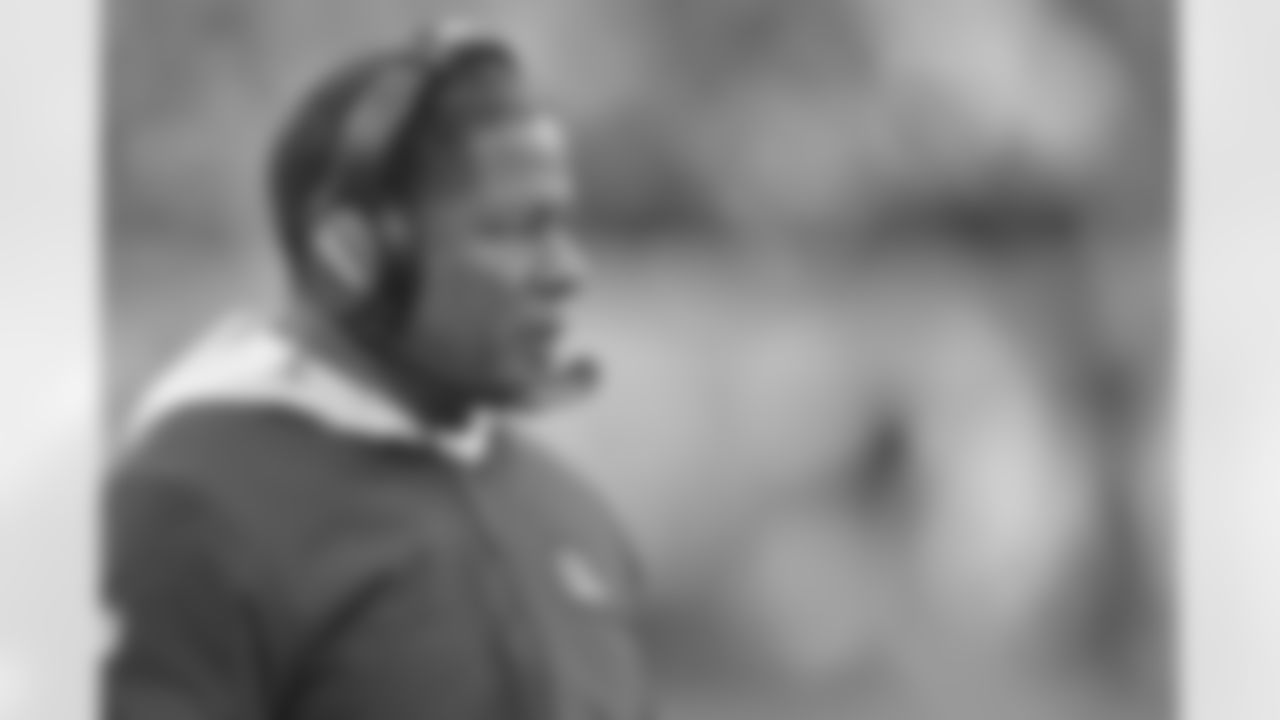
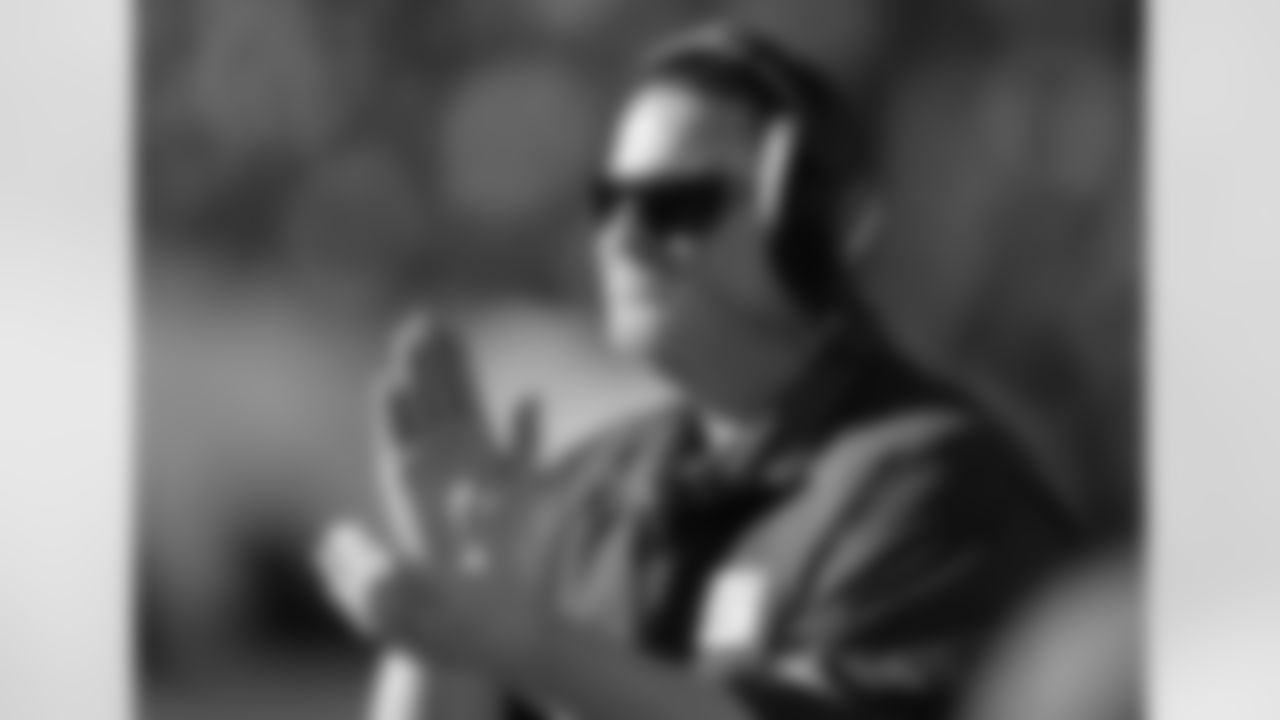
New York Giants head coach Ben McAdoo during the first half of an NFL football game against the Oakland Raiders in Oakland, Calif., Sunday, Dec. 3, 2017. (AP Photo/Ben Margot)
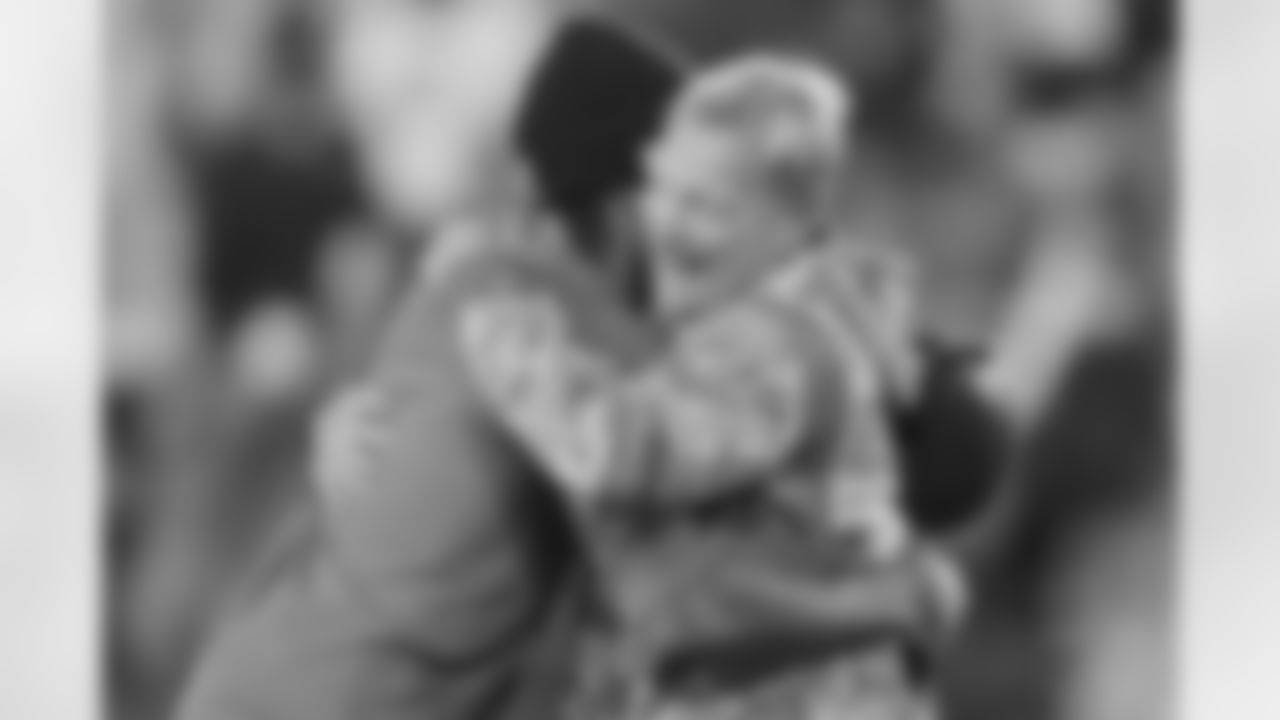
Chicago Bears special team coordinator Chris Tabor, right, greets Pittsburgh Steelers cornerback Joe Haden (23) before an NFL football game, Monday, Nov. 8, 2021, in Pittsburgh. (AP Photo/Gene J. Puskar)

Green Bay Packers quarterbacks coach Ben McAdoo watches quarterback Aaron Rodgers (12) throw the ball during the team's NFL football training camp, Thursday, July. 26, 2012, in Green Bay, Wis. (AP Photo/Mike Roemer)
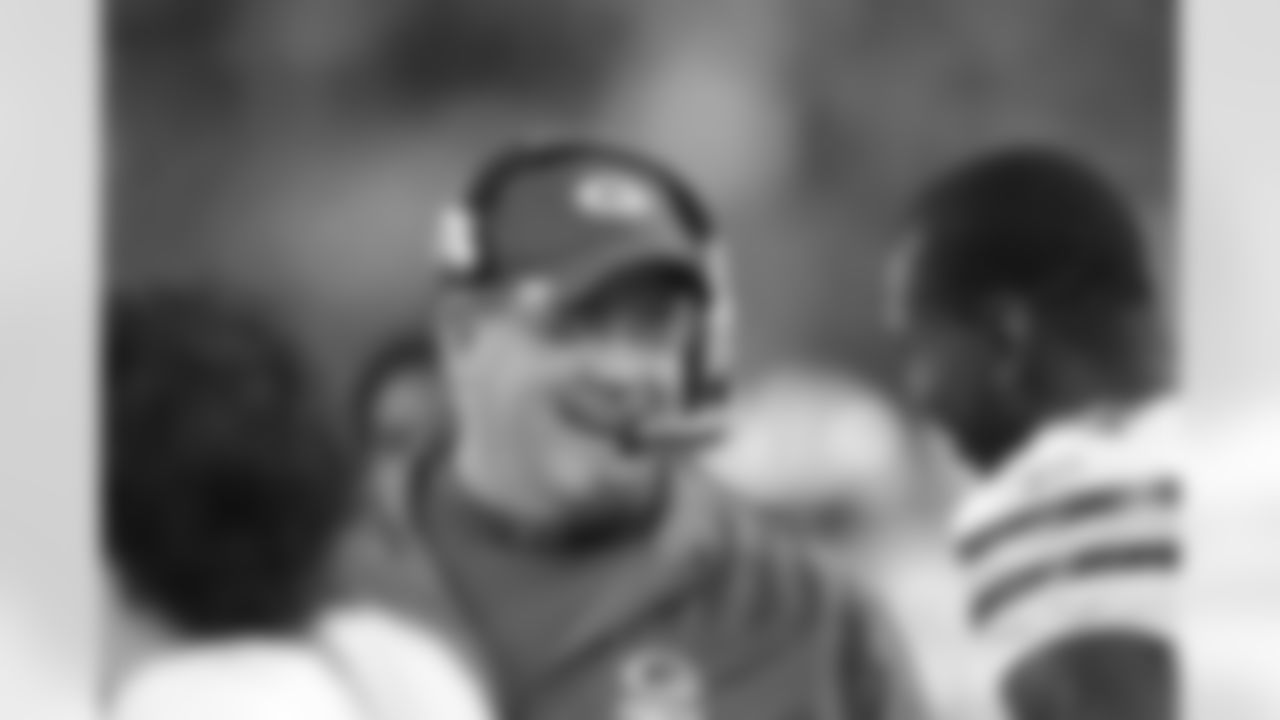
Green Bay Packers head coach Mike McCarthy talks to a teammate during the first quarter of an NFL football game after the game Sunday, Dec. 4, 2011 in East Rutherford, N.J. (AP Photo/Kathy Willens)

New York Giants head coach Ben McAdoo responds to a question during a news conference at the NFL football scouting combine Wednesday, Feb. 24, 2016, in Indianapolis. (AP Photo/Darron Cummings)

Chicago Bears acting head coach Chris Tabor participates in warm ups before an NFL football game against the San Francisco 49ers Sunday, Oct. 31, 2021, in Chicago. (AP Photo/Nam Y. Huh)

Paul Pasqualoni, Detroit Lions defensive coordinator, watches against the Chicago Bears during an NFL football game in Detroit, Thursday, Nov. 28, 2019. (AP Photo/Paul Sancya)
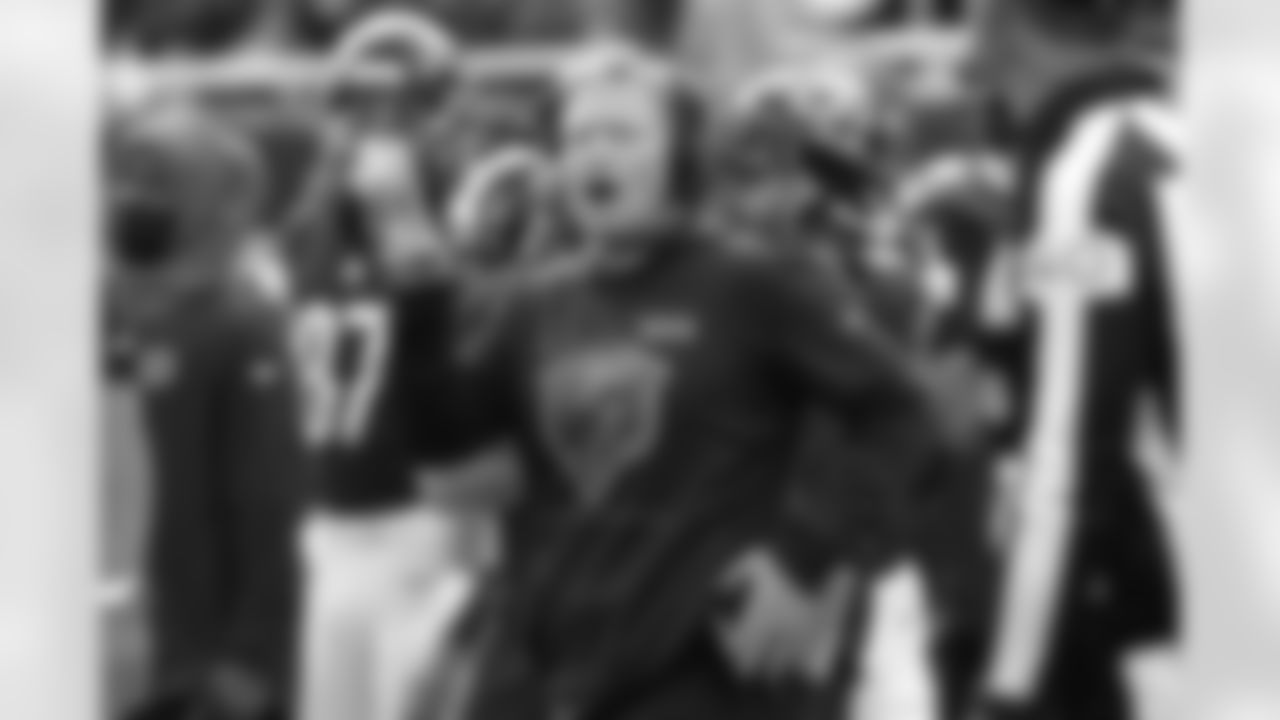
FILE - Chicago Bears acting head coach Chris Tabor directs his team during the first half of an NFL football game against the San Francisco 49ers Sunday, Oct. 31, 2021, in Chicago. The Chicago Bears could be without all three of their coordinators, including special teams coordinator Tabor, when they host the Minnesota Vikings on Monday, Dec. 20, 2021. (AP Photo/Nam Y. Huh, File)
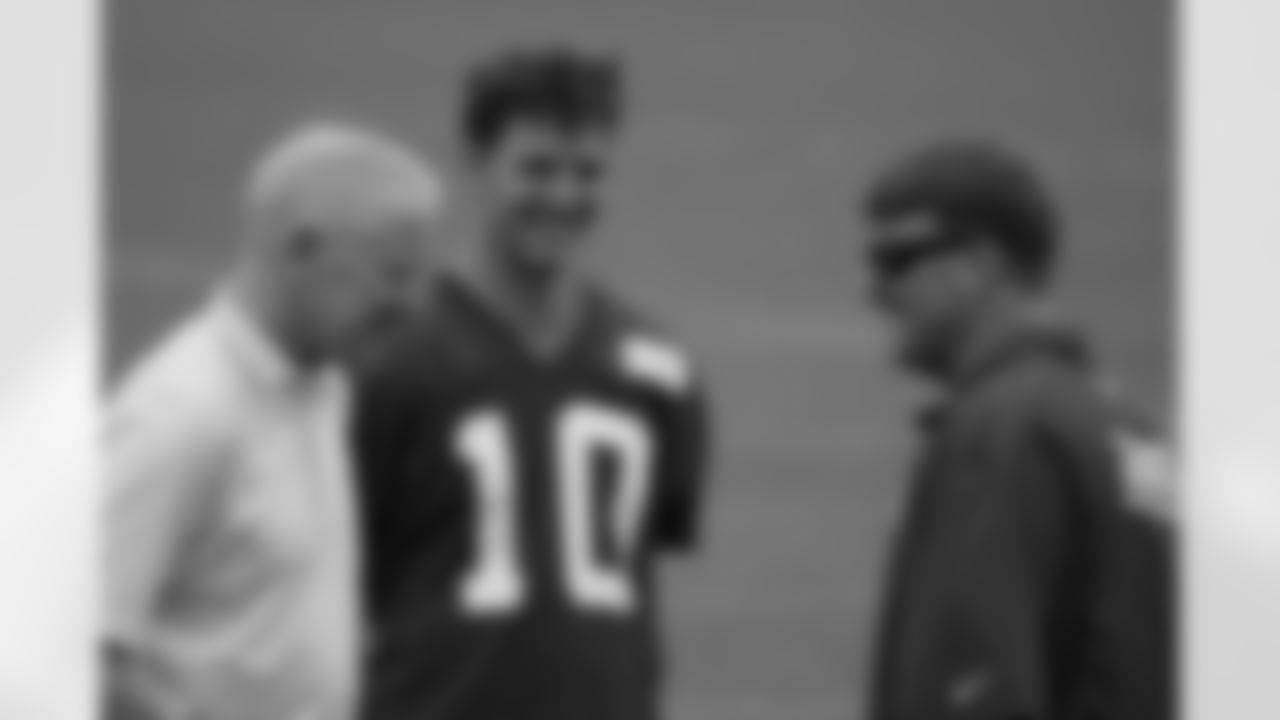
Former NFL quarterback Archie Manning, left, talks with his son, New York Giants quarterback Eli Manning, center, and offensive coordinator Ben McAdoo during NFL football minicamp, Thursday, June 18, 2015, in East Rutherford, N.J. (AP Photo/Julio Cortez)
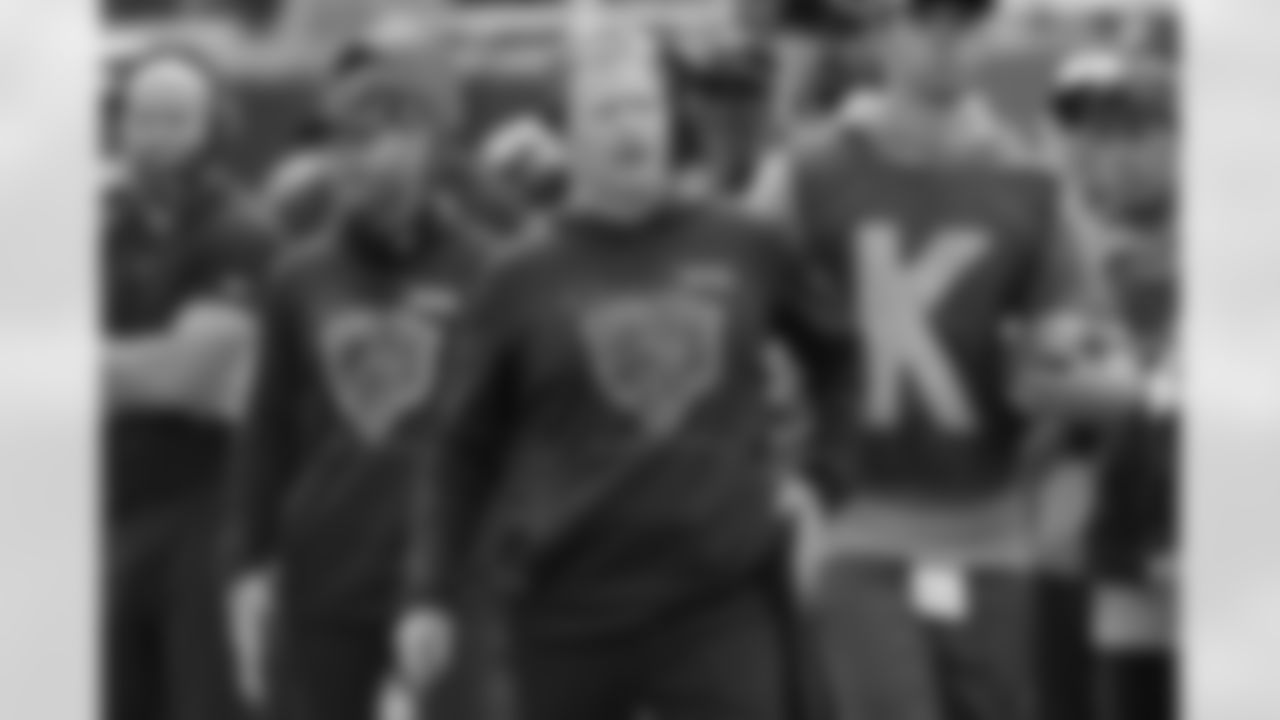
Chicago Bears acting head coach Chris Tabor looks out over the field the first half of an NFL football game against the San Francisco 49ers Sunday, Oct. 31, 2021, in Chicago. (AP Photo/Nam Y. Huh)
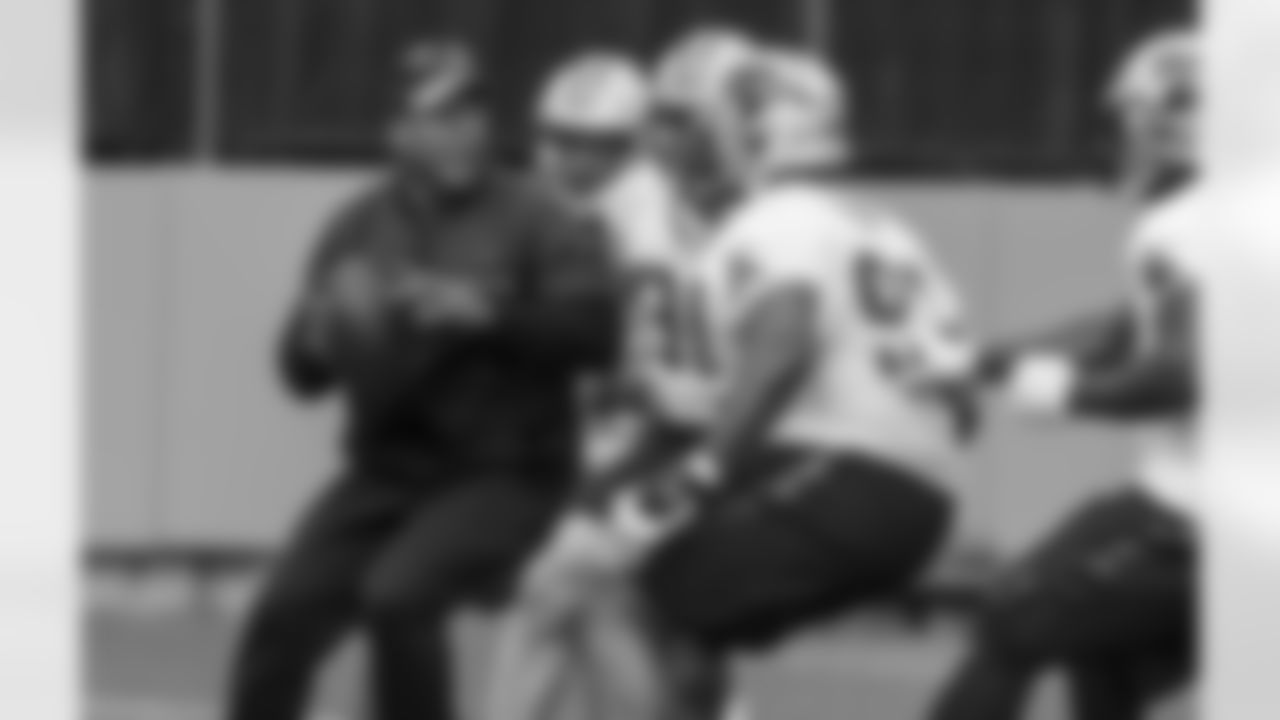
Steve Wilks

FILE - This is an Aug. 9, 2014, file photo showing New York Giants offensive coordinator Ben McAdoo watching the teams warm up before an NFL football game between the Giants and the Pittsburgh Steelers in East Rutherford, N.J. Two games into the preseason schedule, the Giants offense is still looking got answers under McAdoo. (AP Photo/Bill Kostroun, File)
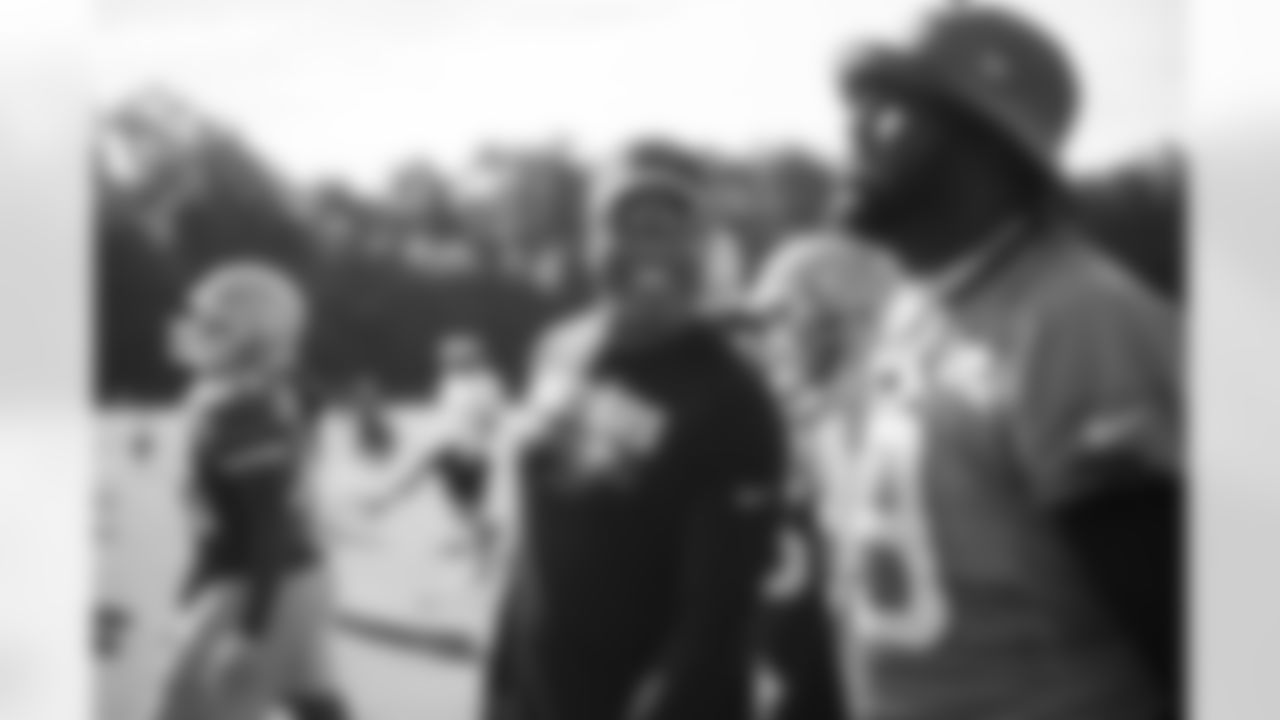
Steve Wilks The Carolina Panthers have their fifth practice of training camp at Wofford College on Sunday, July 30, 2017 in Spartanburg, SC.
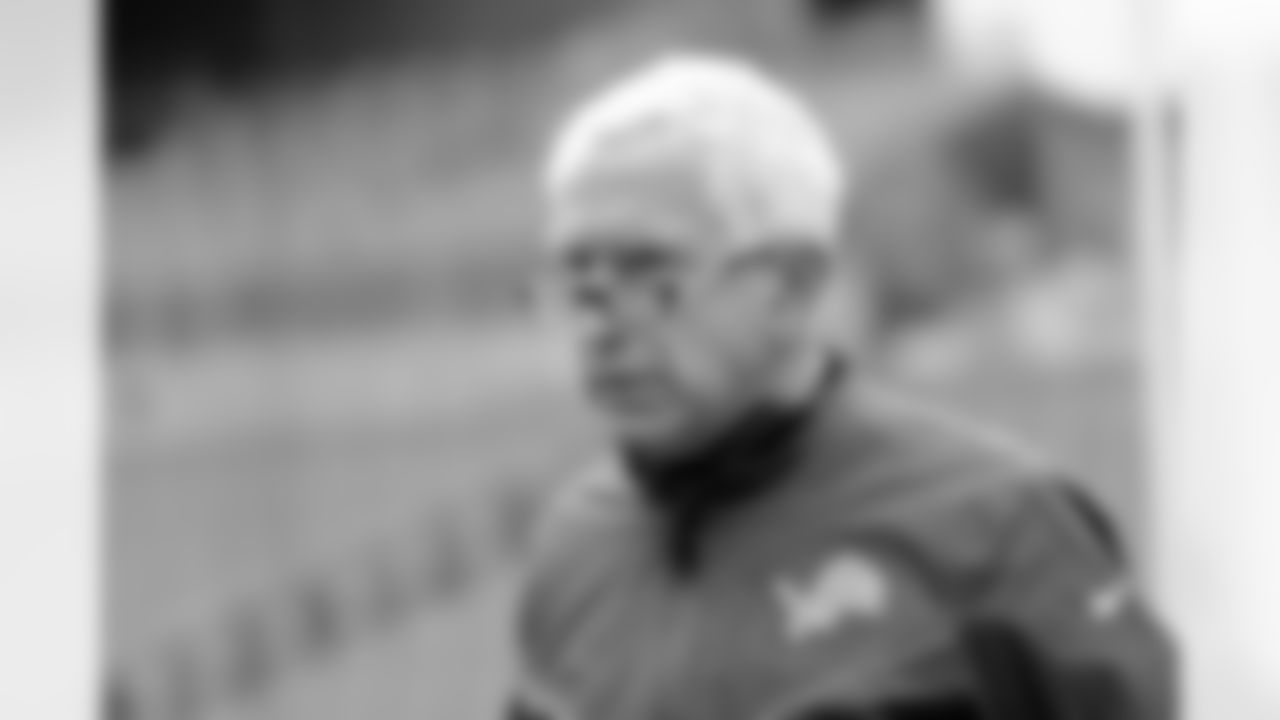
Detroit Lions defensive coordinator Paul Pasqualoni looks on prior to an NFL football game against the Washington Redskins, Sunday, Nov. 24, 2019, in Landover, Md. (AP Photo/Mark Tenally)

Chicago Bears special teams coordinator Chris Tabor walks on the field during an NFL football game against the Cleveland Browns, Sunday, Sept. 26, 2021, in Cleveland. The Browns won 26-6. (AP Photo/David Richard)

New York Giants head coach Ben McAdoo talks to reported during NFL football training camp, Saturday, July 30, 2016, in East Rutherford, N.J. (AP Photo/Julio Cortez)

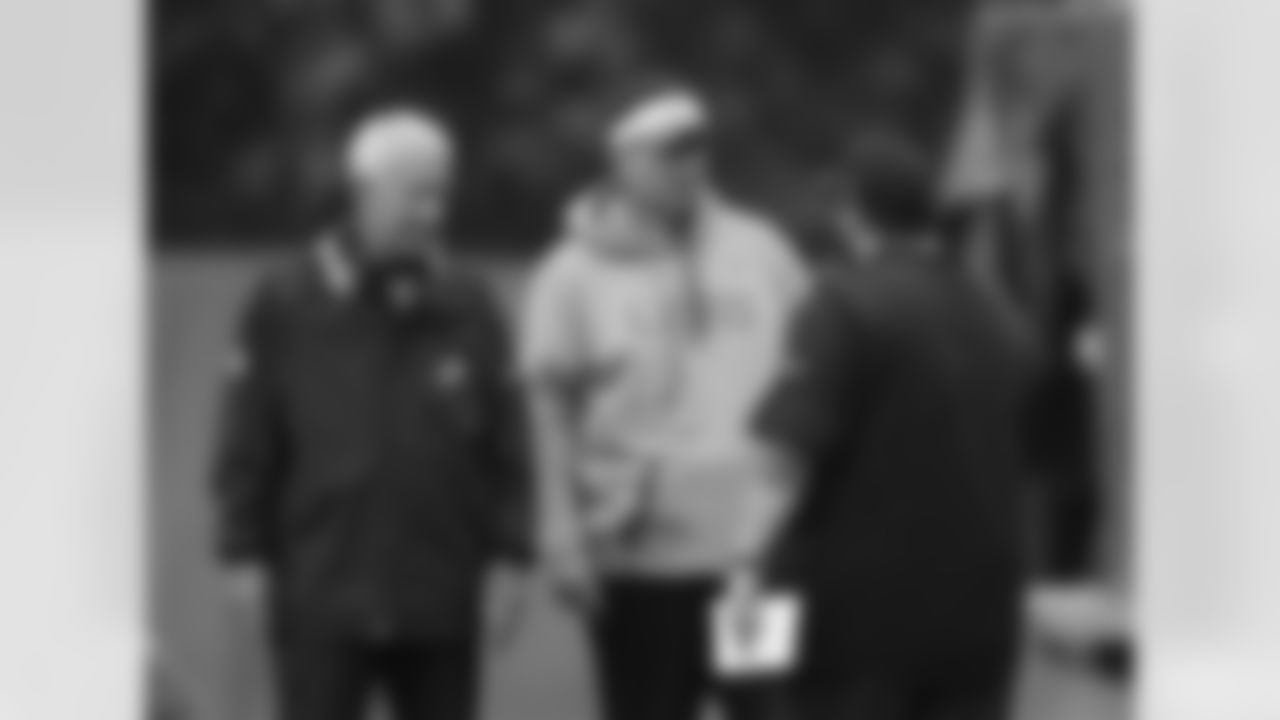
Detroit Lions defensive coordinator Paul Pasqualoni, from left, and linebackers coach Al Golden listen to head coach Matt Patricia during an NFL football practice in Allen Park, Mich., Thursday, May 30, 2019. (AP Photo/Paul Sancya)
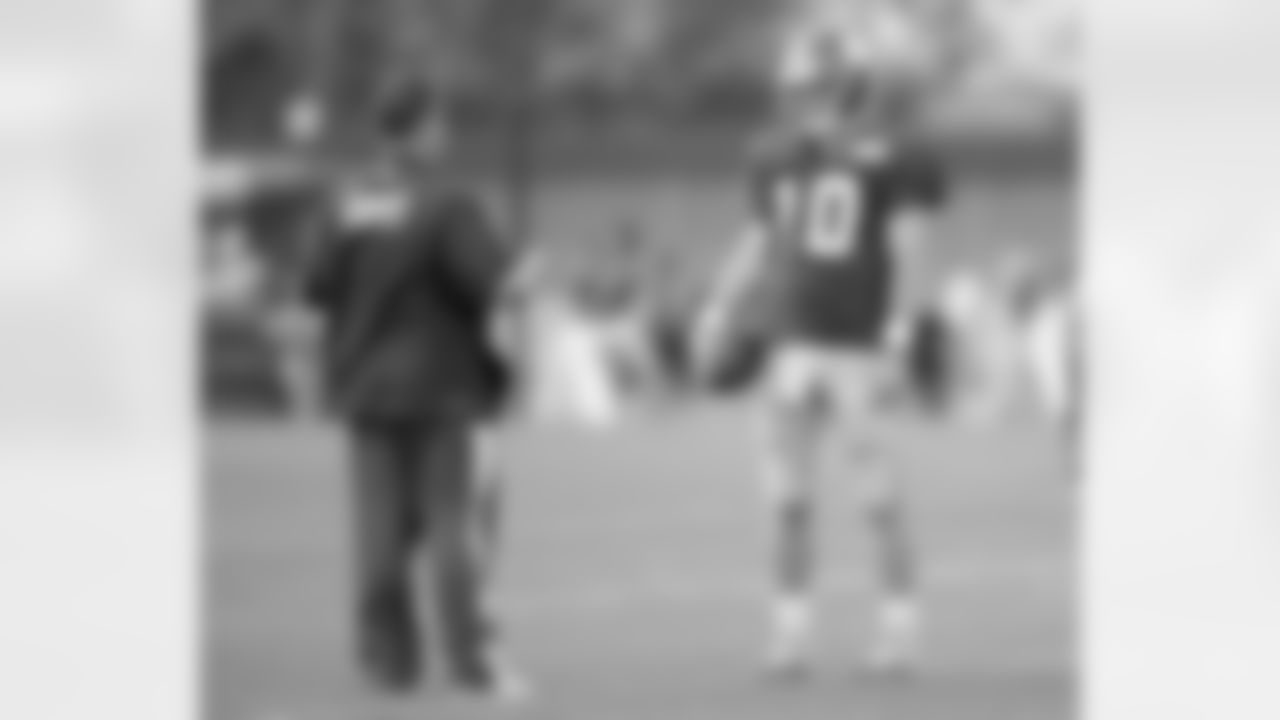
New York Giants offensive coordinator Ben McAdoo, left, talks with quarterback Eli Manning during practice at the team's NFL football training camp Wednesday, Aug. 19, 2015, in East Rutherford, N.J. (AP Photo/Bill Kostroun)
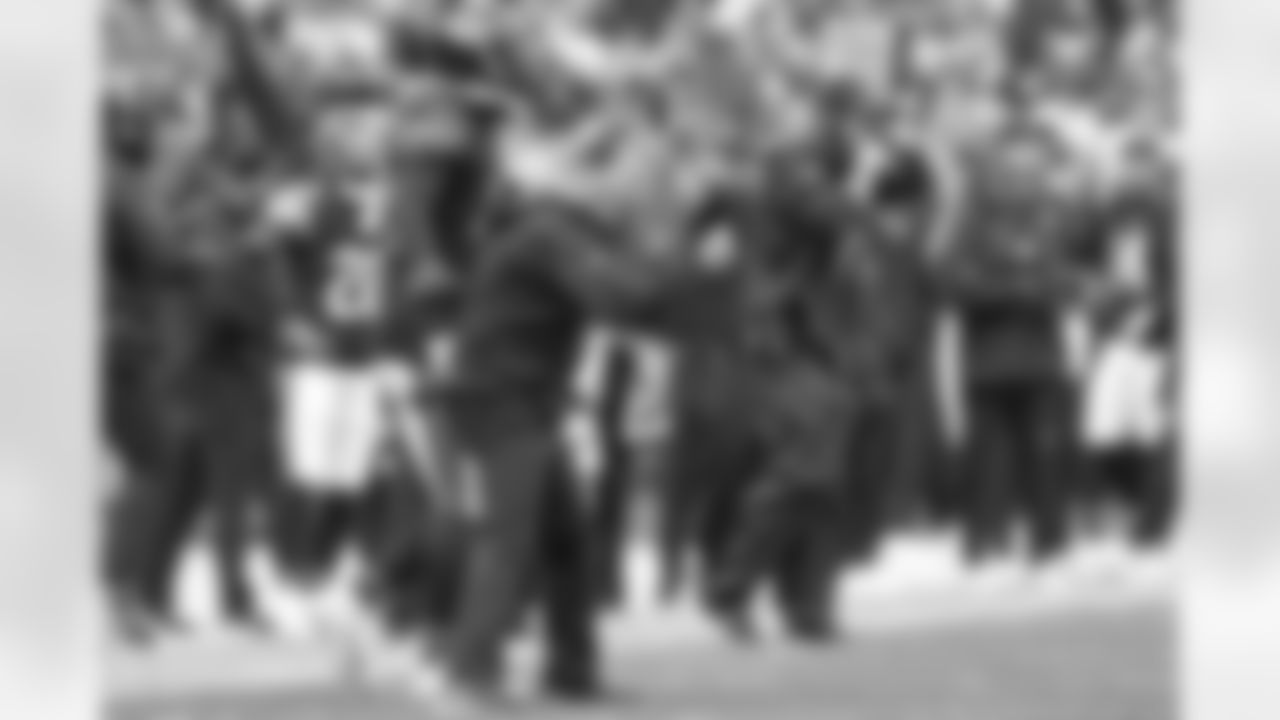
Chicago Bears acting head coach Chris Tabor reacts during the first half of an NFL football game against the San Francisco 49ers, Sunday, Oct. 31, 2021, in Chicago. (AP Photo/Kamil Krzaczynski)
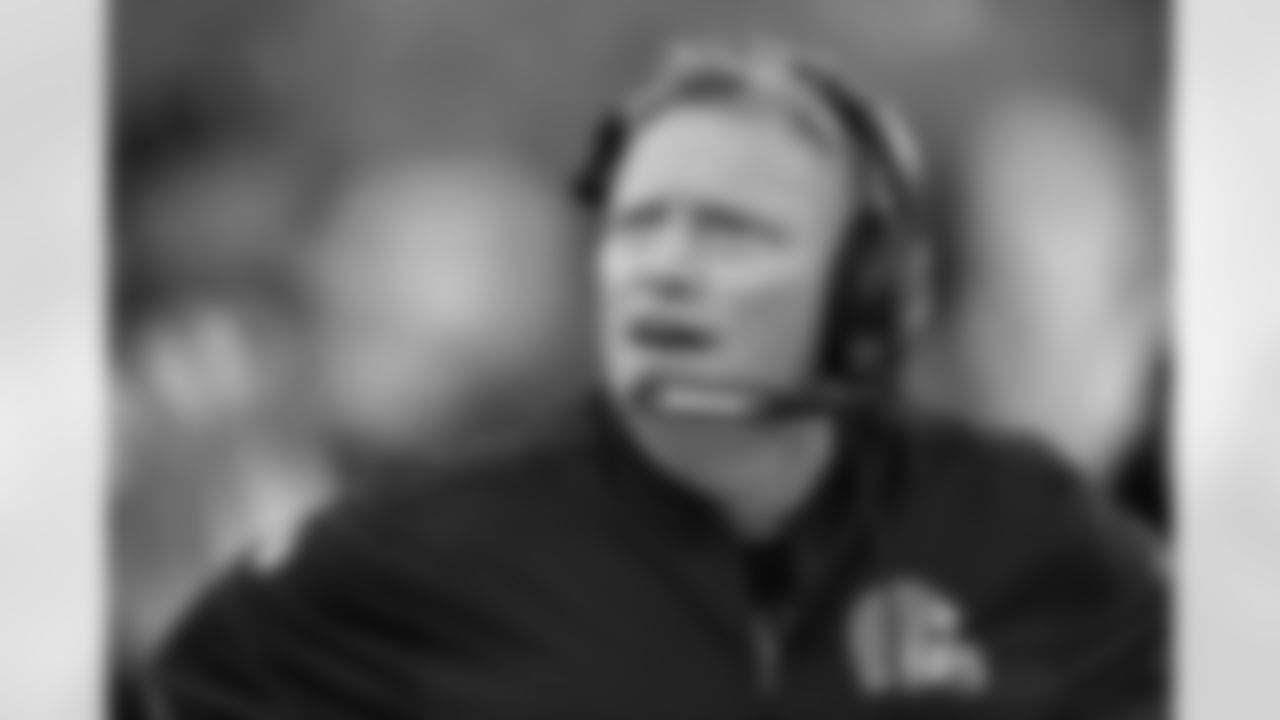
Cleveland Browns special teams coordinator Chris Tabor reacts during an NFL preseason football game against the New Orleans Saints, Thursday, Aug. 10, 2017, in Cleveland. The Browns won 20-14. (AP Photo/David Richard)
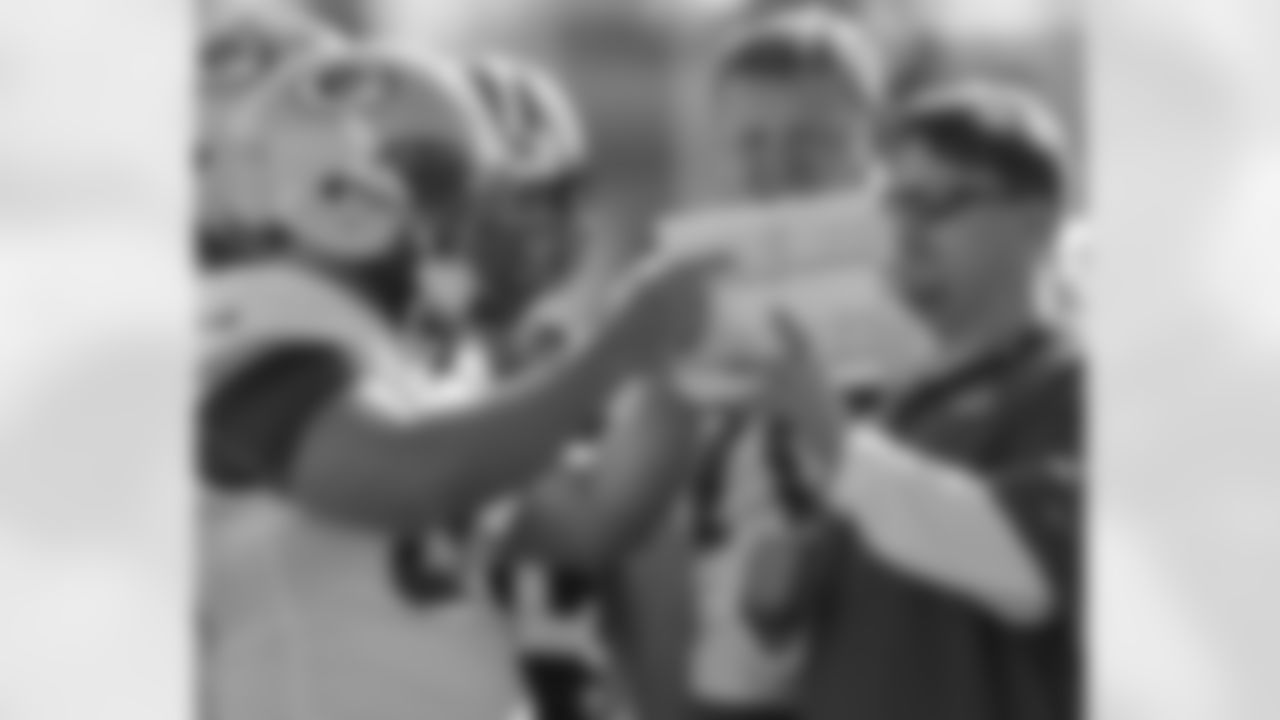
FILE - In this July 28, 2012, file photo, then-Green Bay Packers quarterbacks coach Ben McAdoo, right, talks with center Jeff Saturday (63), quarterback Aaron Rodgers (12) and offensive guard T.J. Lang (70) talk during NFL football training camp in Green Bay, Wis. McAdoo will catch up with old friends when he returns to Lambeau Field to coach the New York Giants in a game against the Packers on Sunday. . (AP Photo/Mike Roemer, File)
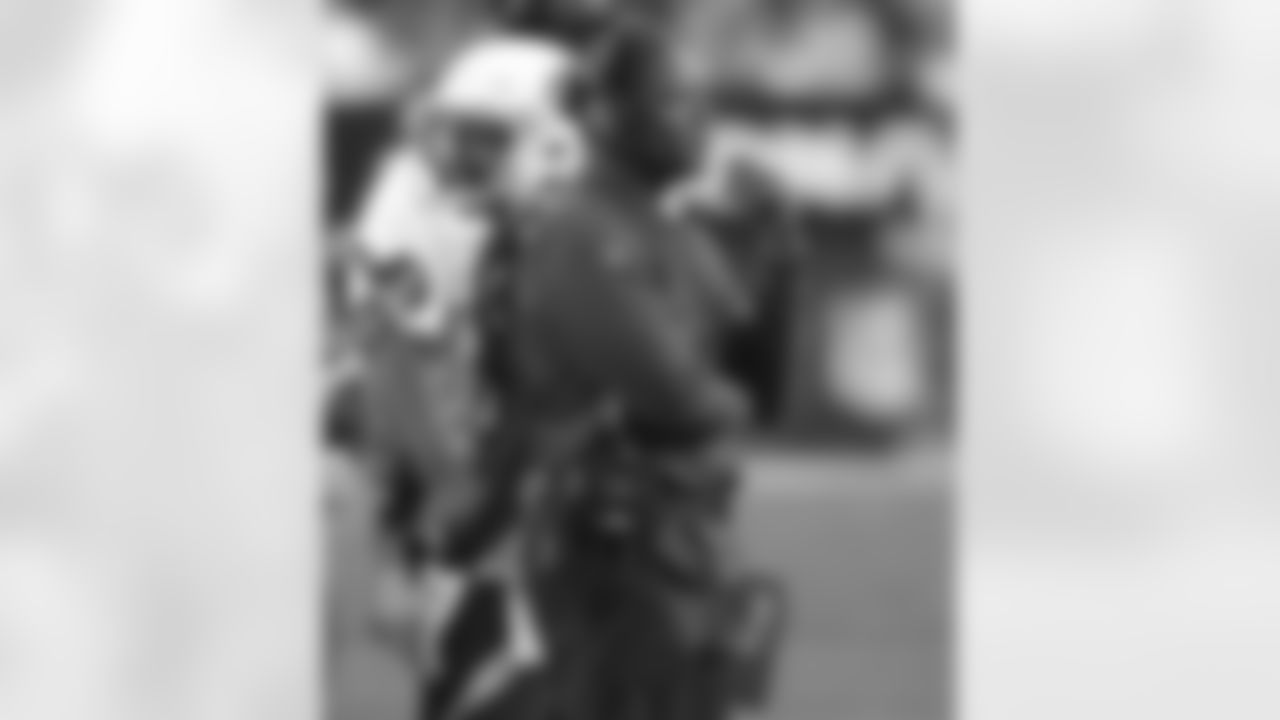

Cleveland Browns special teams coordinator Chris Tabor during NFL football training camp Sunday, July 29, 2012, in Berea, Ohio. (AP Photo/Tony Dejak)
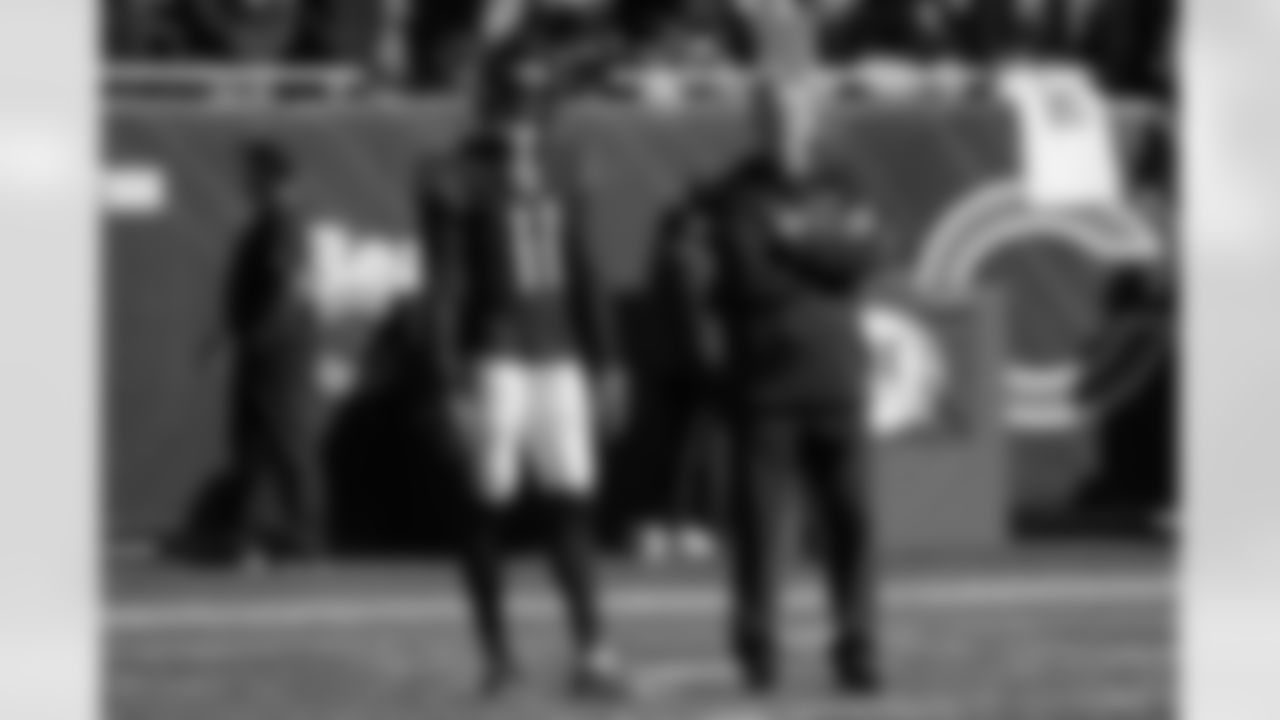
Chicago Bears wide receiver Darnell Mooney (11) and acting head coach Chris Tabor watch warm ups before an NFL football game against the San Francisco 49ers Sunday, Oct. 31, 2021, in Chicago. (AP Photo/Nam Y. Huh)

Chicago Bears special team coordinator Chris Tabor, right, greets Pittsburgh Steelers cornerback Joe Haden (23) before an NFL football game, Monday, Nov. 8, 2021, in Pittsburgh. (AP Photo/Gene J. Puskar)

Green Bay Packers center Scott Wells (63) listens to Green Bay Packers offensive line coach James Campen in the second quarter of an NFL football game against the Detroit Lions in Detroit, Thursday, Nov. 24, 2011. (AP Photo/Paul Sancya)
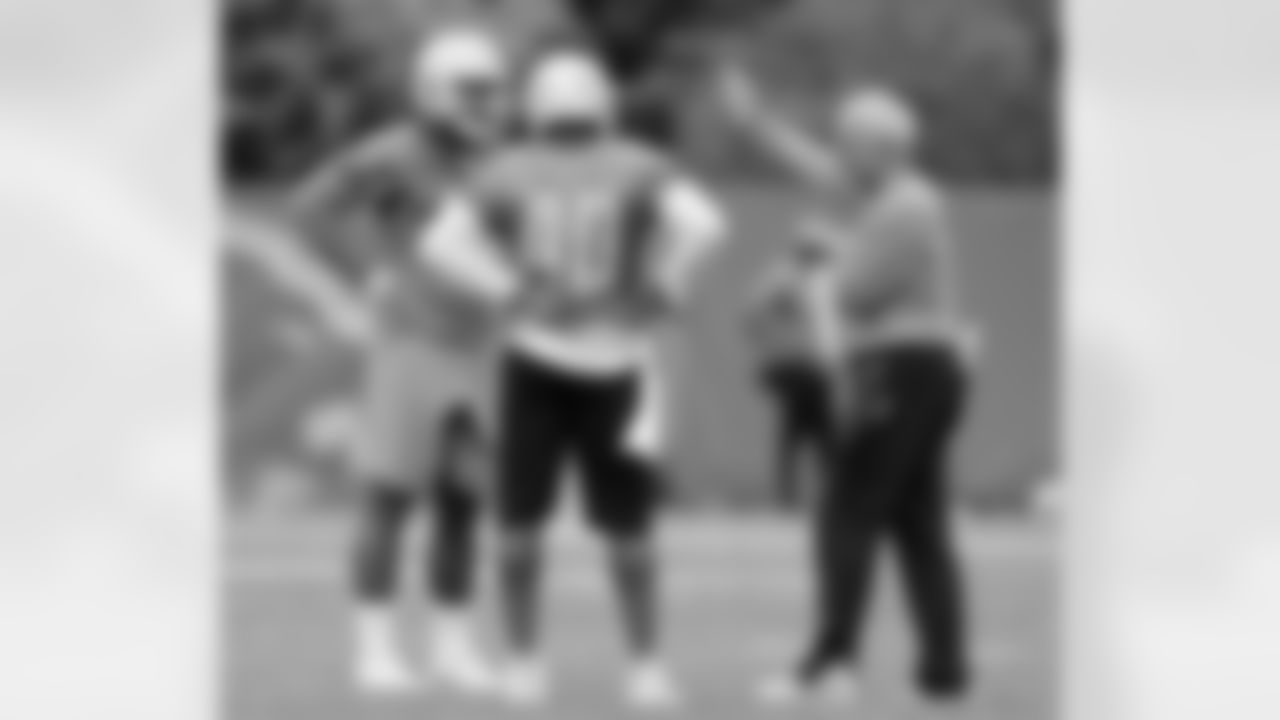
Detroit Lions defensive coordinator Paul Pasqualoni, right, works with linebacker Tre Lamar, left, and middle linebacker Jarrad Davis (40) during NFL football training camp Tuesday, June 4, 2019, in Allen Park, Mich. (AP Photo/Duane Burleson)
